
Folio presents:


Folio presents:
English Chair: Stephen Ruffus
Folio Advisor: Brandon Alva
Literary Editor: Katherine Allred
Web Editor: David Gentry
Design Editor: Michelle Hallberg
Folio Staff:
David Ahlman
Kevin Aubry
Emily Beck
Zack Brown
Ashley Cox
Hannah Dailami
Sheridan Davis
David Lindsay
Tyler Mortensen
Brian Munford
Themovingwatersattheirpriestliketask
Ofpureablutionroundearth’shumanshores
-John Keats, BrightStar
Karla
Erynn
Emina
Kat
Heber
Effervescing Visions of Light .............................................69
Chris Flower
Weeping Moon................................................................70
Christopher Christman
I Found A Pumpkin Shell and Thought...................................71
Katherine Allred
Tea Time...........................................................................72
Cat Rhoads
My Heart a Bell 73
Katherine Allred
Ladon...............................................................................74
Alexzander Olsen
Gladiators ........................................................................75
David Ahlman
Long-Necked Delight ......................................................76
Kevin Hutson
For the Good of the Republic ..........................................77
Matthew curtis
To My Wife’s Ex-Boyfriend ...............................................78
Ashley Cox
The Stare Down ...............................................................79
Christopher Christman
A Loyal’s Turning Point 80
Brooke Smith
Effervescing Visions of Light .............................................81
Chris Flower
Purple Flower ..................................................................82
Harry Keeran
Necessity .........................................................................83
Tyler Mortensen
Brown Leaf ......................................................................85
Matthew Curtis
Effervescing Visions of Light .............................................87
Chris Flower
Major Tom .......................................................................88
Corey Young
Excerpt from:
David Ahlman
As the black of night un-shaded to gray—with the morning dawn light fighting against the cumulonimbus clouds and spinning winds outside—a glimmer of sunshine peeked through a needle-sized hole in the tempestuous billow above the isolated and once abandoned prison in Joliet.
This newly formed string of sunlight shot into a single cell window fifty feet above the dirty, weeded grounds on the outer east wall.
As it entered through the thick bulletproof glass, the ray enhanced, enlarging into a circular beam about the size of a man’s eye.
Within the cellar, the window rose roughly fifteen feet above the floor and was secured by slender, gridded, rusting, and unreachable metal bars.
Finding a gap between the bars, this tinge of light landed softly atop an equally slender, rusty creature curled penitently upon a fetid and grungy cot.
The cot—supported by a rotting wood bed frame—lay crooked and off-kilter in the center of the cell, and in the middle of this mattress slept this creature—a teenager.
Striking the top of the young man’s newly shaven scalp—spotted with numerous slits formed by aggressive cuts from his most recent shearing—the radiant stream steadily scaled down the prisoner’s pale and yellowing forehead toward his swollen, purple eyelids.
This small sensation of incandescence shot like a bullet through the young man’s baggy eyes to his brain, waking his restless mind before dissipating as quickly as it came.
Half opening his collapsed gaze, the juvenile flickered his long, youthful eye hairs while at the same time rolling the balls of his royal blues back into the black of his head in slumber; however, this did not satisfy—he wassick,shivering,andstarving.
He rolled himself back-and-forth, side-to-side, right-to-left, then left-to-right on his dirtied and flattened bed in order to claim some sort of warmth, but soon recoiled once more into the furthermost center of the cushion in hibernation.
The miniature springs in the deflated bed stabbed through the top of the cotton fabric, pricking him incessantly with every minor movement he made.
These sticking prods accompanied by the thundering electricity of the raining firmament outside further urged him to wake against his will.


Spirals and Skys
Cat Rhoads
Excerpt from:
Hannah Dailami
No, I don’t make pipe bombs. No, my dad is not a Muslim radical. No, I was not part of the Twin Towers falling to the ground. No, I am not what my skin color says I am. But that doesn’t change the fact that you still think it does.
I was in the second grade when my skin color changed the way I was viewed. It was a September day when my teacher turned on the television. This was new; we never watched the television hanging from the ceiling. I watched in horror as smoke and flames filled the screen. I didn’t see the people jumping, at least not in that moment, but saw the second plane hit.
My oldest brother was at the door, asking for me. He had a note in his hand that said FamilyEmergency on it. I went home that day to find that my father was safe but would not be coming home for a while. My mother cried that night, and the week after as we read about the retaliation against Middle Eastern immigrants. My mother no longer allowed me to walk to school, but instead was faithfully on time to pick us up each day. She was worried we would soon be victims of a crime we had not committed.
Reports were coming in day after day of hate crimes against Middle Eastern immigrants. Incidents like that of Brian Harris of Ronkonkoma, New York who was charged with a hate crime after he allegedly held an Arab American at gunpoint while making anti-Arab threats on September 11, 2001. Closer to home and just a day after the attack on the Twin Towers was Michael Herrick of Salt Lake City, Utah who was charged with first-degree felony aggravated arson and a hate crime after allegedly starting a fire at a Pakistani family’s restaurant.
I was one of the lucky ones. My skin color was often mistaken for being of Latin or Mediterranean descent. I would go along with anything if it meant I had “friends”. My siblings were not so passive and my little brother would be sent home with bloody lips and rage. But the internal damage was already done.
My skin was from then on the deciding factor between enjoying the playground games, and wishing I could be someone else. My favorite poet, Shane Koyzcan said this:
Buttheschoolhallswereabattleground
Wherewefoundourselvesoutnumbereddayafterwretchedday
Weusedtostayinsideforrecess
Because outside was worse
Outsidewe’dhavetorehearserunningaway
Orlearntostaystilllikestatuesgivingnocluesthatwewere there.
I longed to be accepted and belong but that would never be in my cards. And then I grew up. It’s true when they say that time heals most wounds. I am not looked at for my skin color but as the person who is underneath it. My life is no longer skin deep, but there will always be things that I wish people would have known. What isn’t printed on my skin are the struggles and sacrifices that my family has made for what you see.
What you see is my brown eyes and olive complexion. What you see is a last name that you cannot pronounce and try anyways with halfhearted attempts. What you don’t see is that my oldest brother is going through the Police Academy to become an officer. What you don’t see is that my youngest brother is a currently a Cadet for the Salt Lake Police Department. What you don’t see is the struggle we make to support our family who will be putting their lives in danger.
What you don’t see is that my father sacrificed 10 years’ worth of birthday parties, anniversaries and deaths so that he could protect your country. What you don’t see is that he came here for peace and freedom, and instead receives fearful looks and stares. So fuck you Rose Williams for telling the entire 6th grade class that my dad was the culprit behind 9/11.
This is my skin color, and this is my past. No, I don’t think that this essay is going to change your prejudices, whatever they are in. No, my father never lost his job but was instead a necessity to national security. We were the lucky ones. No, I don’t believe in racial injustice. But I’ve realized something. Not everyone is privy to see beyond my appearance and demeanor; what is only skin deep.

A moment of stillness inhale exhale
Defined by those who give me a name descriptions of self that mean nothing and everything inhale
Clarity through the chaos each thought giving way to the next, not finalized before dissipating into exhale
I understand the sharpness the exactness of who I am, what I am inhale exhale
I am victorious.

Hannah Melton
The building on top of the hill, my destination, is gray. The color fit the mood of this place. It isn’t a happy place. How could it be? This was a place that held people captive. No one wanted to be here. I opened the thick glass doors, receiving a rush of icy air on my face. It was fitting for the mood of the room that I walked into. Like I said, this wasn’t a happy place – there was very little warmth in this building.
The room was quiet; you could hear the hiss of the florescent lights. I could hear the click of my shoes against the tile floor as I walked to the check-in counter. The clicking seemed to get the attention of the woman behind the counter. She looked up at me and she didn’t look happy to see me. She probably wasn’t really happy to see anyone who came in here. I gave her my name and who I was here to see. I felt a twinge of disgust when I said the name. I never thought that he would be in here.
The benches they had us wait on were hard and uncomfortable. I stared at the clock behind the counter, thinking how stupid it was that they made us arrive forty five minutes before our scheduled visit. Other people filed into the room, all with the same expression as mine. As I sat, I started to wonder what their stories were. Whom did they come to see?
When it was finally time, we filed into a smaller room for roll call. I walked through the detector, not worried about it going off, however the next person who went through made it go off. A forgotten cell phone. Ten minutes later we headed down into a small, cave-like room lined with stools. The only windows were the ones across from where we all sat. I held my breath as my brother came in and sat on the other side of the window, smiling.

Excerpt from:
Ashley Cox
Everyone in Stansburry thought little Alfie Harris was a pathological liar, and his mother cried because she thought he was going straight to hell for it. Of course it had never been confirmed that the boy was a pathological liar, but everyone who lived on Abbey Road knew differently. No one ever noticed anything strange about the boy before, but after his father, the good Judge Harris, held his party, everyone agreed the boy was definitely wrong in the head.
The good Judge Harris, however, refused to let just anyone look at his son; oh no, only an expert, someone well respected, could look into the boy. And Stansburry agreed with him. Of course the judge would get only the best for his son, just as long as Father Marlin, the passionate Catholic priest, secured the boy’s soul, the judge could be as picky as he liked.
This is why Alexander and Elizabeth Harris made sure everyone knew they were going to Doc Martin for advice. Doc Martin specialized in odd behavior. It was unfortunate, however, that he would not take the hint and offer to help his old friends the Harrises. Not that he didn’t have plenty of opportunity to study Alfie Harris – he simply kept his observations to himself. For example, Doc left his pale brick house promptly at 7:25 every morning for his daily exercise. Sometimes he toted an umbrella for the rain or perhaps a hat against the snow, but he always traveled north. Alfie and his older brother Chris, who were always late for school, rushed around him in their mad dash to beat the harsh ringing bells of the Christian school they reluctantly attended. And every morning Doc would salute and quietly suggest they avoid good behavior whenever possible.
Doc Martin comforted the good folks of Stansburry. He was predictable. He always wore his dark, shoulder cut hair away from his face, and his wide eyes were always amused and amiable, though he never wore glasses, which everyone agreed was odd. Alfie Harris had questioned him on this very topic, a servant reported to the town as she let the dogs out for a bit of air. “Sir,” the boy had asked, “why is it that a doctor of your age doesn’t wear glasses?” Doc Martin, or Doc as he was affectionately called, winked to the eleven year old boy and said he wasn’t a doctor of bodies but a doctor of souls.
“I don’t see how that matters, sir,” Alfie said, standing up straighter. “You are a doctor either way, aren’t you? Aren’t you afraid you’ll miss something because you don’t see it?”
Doc, it was reported, had paused and held still a long moment before he nodded in agreement. “Alfie, when I can’t see straight anymore, I won’t be a doctor anymore.” They shared a solemn nod and parted.
ideas that didn’t make it that far
Zephyn Livingston-Grano
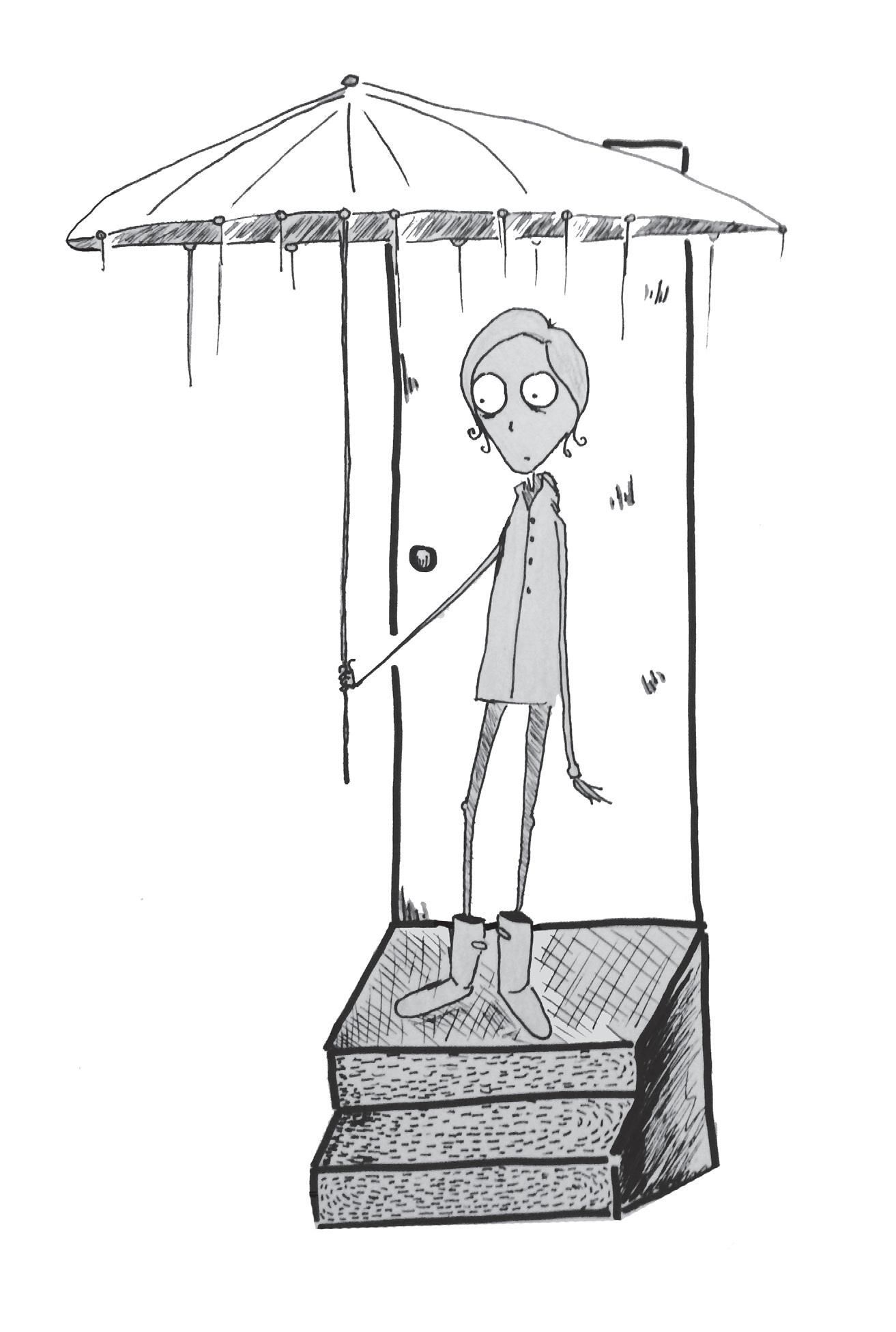
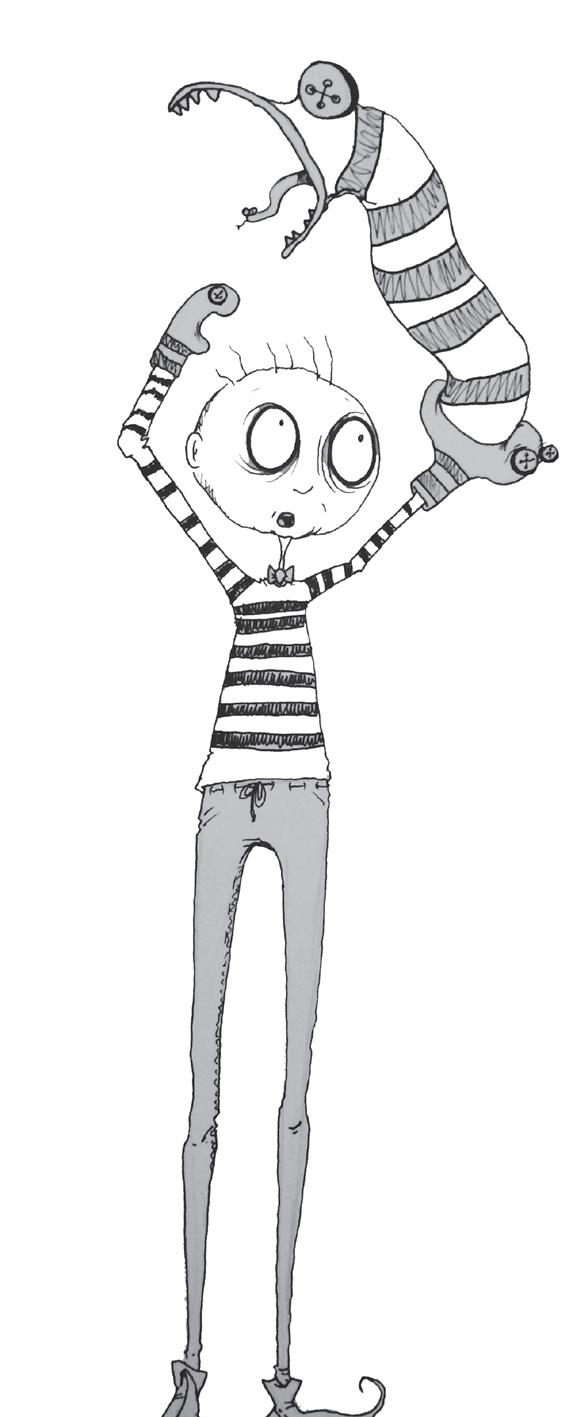
Excerpt from:
Ashley Cox
Benedict told me later that it was the curse that made him bad at making friends. But before I even knew that, as a five year old kid I could tell he wasn’t a people person. I wasn’t even sure he wanted friends. He would just sit in the corner of the classroom and sniffle. Pretty soon, all of us kids in Mrs. Person’s class learned to do our work without being distracted by the sound. Day in and day out, Benedict would sit in the corner and cry, cough, and shake. He told me later that the curse was still growing, and that’s why he’d lasted so long in school. I don’t remember seeing anything unusual until one day when Benedict suddenly collapsed to the ground. He kept breathing in but he never breathed out, and no one was sure why.
It was pretty cool, though, when the cops showed up; their bright carnival lights still circling even when they were in the building. Benedict got a Darth Vader mask and was carried out to the carnival lights on a white bed with wheels. We all watched enviously from the window. After that, he became a quiet legend. Sometimes he’d be seen at the grocery store or a park, and those who saw him were revered by their kindergarten counterparts. It wasn’t until first grade that I became part of the legend myself.
First grade had more homework, and since I lived out in the country, closest to Benedict, I was charged with the task of taking his homework to him. For half the school year I never even saw him, and then one day he was outside swinging. I stopped to watch him. He would swing really high and jerk upwards on the chain. It confused me, so I asked him what he was doing. He regarded me with large amber eyes for several seconds before shrugging in reply.
“My older brother always tried to push me all the way around the bar,” I said thoughtfully.
“Did you make it?” he asked.
“Nah, my mom came out and yelled at us. Never got the chance.” Benedict looked up at his brightly painted house. “My mom’s upstairs,” he said. “She won’t be back down for a while.” When his mom did come back down, I had a black eye and Benedict a bloody forehead. I’d tried pushing him first, but had accidently pushed him right out of the swing. He’d then pushed me into the vertical pole as he took a running start to try and get some momentum. For the rest of first grade, Benedict and I would sit on the swings after school and try to figure out how to do a three-sixty without getting caught.
Benedict figured out what was wrong with him in third grade. “They think I have asthma,” Benedict said as he defeated Bowser for the umpteenth time. I glanced at him quickly before looking back at my own screen. He’d been going to a new doctor every two weeks or so since the start of second grade. “I don’t have asthma,” Benedict assured me.
“You don’t?” I asked.
“Nope,” he said, turning back to the screen to restart the game.
I waited, but he didn’t continue. “So what do you have?” I asked.
“A curse,” he said, “from the Gods, or fairies. I’m not sure yet.”

Hannah Dailami
I clutched onto his smooth rain jacket, wrapping both hands so that they clasped onto the familiar. But nothing felt familiar about this situation at all. Foreign thoughts and meanings meant to be interpreted filled the recesses of my mind, so foreign that butterflies filled my stomach with unruly pains. I thought I might throw up, and reminded myself that I wouldn’t because I hadn’t in years. Before I could move into another arbitrary thought of throwing up, we accelerated in speed.
The bike hummed a deep thunder that vibrated up my spine and into my skull. It rolled around in the little space that belongs there and rushed through my arms. The intense energy escaped from my fingertips last, soft at this point, and dulled. Again I grabbed tighter, hoping that my arms would not somehow forget how to hold on. My stomach began to relax as we slowed down and stopped completely. My legs had turned into heavy deadweights that were yearning for stability. They did not want to get off but instead wanted to stay completely resistant to any sort of movement. I pried them off the side and readjusted my organs.
The helmet sat securely on my head until he laughed and shimmied it off. The temperature of my fingertips dropped rapidly but I couldn’t understand why. He held them, with the intent to hold them for a while. His grip was firm with an unknown conviction that I’m not even sure he knew about at the time.
The moon peeked out from behind the clouds, only to shy away from the watching bystanders. The sky turned into an ominous black as I grew accustomed to staying still. The moon continued to hide. It didn’t want to come out and deal with what was going on, but instead wanted to stay in the minds of those who remembered it as a bright and lovely object. So there it stayed. My hands were feeling better now, almost like I was beginning to feel better. I left my head with the helmet next to the bike and walked for a bit. We weren’t going anywhere in particular, but just going. It felt that way all the time. No brain and no control over what was happening. I just walked, only without the knowledge of how to move my deadweights.
The bike was waiting for us when we got back. It sat longingly as the air started to whisper of rain. Maybe it too worried about us, about me. It was time to put my head back on and go home. The hum was different this time. It echoed in my newly readjusted head all the things that were happening in this new state. It was a longing, but with something like pure terror hiding inside.
We rode the city streets and the moon was still hiding behind the dim clouds. I couldn’t fathom why something so iridescent and beautiful would hide. But I suppose nothing ever makes sense to the person looking at a mirrored image.

Hannah Melton
Twoyears,sevenmonths,sixteendays. Mia opened her eyes to a new day…theday. “Day seventeen,” she thought to herself as she got out of bed and walked towards the bathroom. She winced at the pain coming from her rib cage as she walked. Upon reaching the bathroom she gently slipped off her silk nightgown to see the damage from last night’s punishment. Just as she suspected, a huge purple and black bruise decorated the left side of her ribcage. She glanced at the other bruises that adorned her body; some were very fresh, resembling the bruise at her side. The others were older, having turned an ugly muddy yellow color.
Mia shook her head in disgust. “Too long,” she said out loud, turning towards the shower. Angry tears threatened to fall from her eyes but she wouldn’t allow it. She promised herself that she wouldn’t cry again over the hell that was her life. Besides, crying didn’t do anything anyway. “Shawn wasn’t always the monster he is now…”
Shutup! Mia’s brain shouted. Stopmakingexcusesforhim,Mia! Mia nodded, agreeing with herself and finished showering. She didn’t have a lot of time to waste.
It is true that Shawn wasn’t always the way he is today. When they met at a dance, Shawn swept her off her feet. He was tall with broad shoulders, thick blond hair, and powder-blue eyes. Mia was thrilled when he showed interest in her. When she lost her parents at the age of nineteen, she felt like her whole world had crumbled. Although she had a lot of love and support from her friends, Shawn’s attention towards her was a new awakening. They had a lot in common; they both were the only child and came from good families. The only difference was that Shawn had come from a wealthy background, while Mia came from a modest background. But money wasn’t important to Mia; she was just happy that she had met someone with whom she felt like she had a connection for the first time in three years. On top of that, Shawn treated her like a duchess. Her every wish was met, even when she insisted she could fend for herself. Shawn wouldn’t hear of it.
“I don’t want you to need anything or anyone else but me.” That is what Shawn would say. Never thinking anything of it, she allowed him to take over. He was also seven years older than she was, which is what she wanted in a man. Someone who was mature and steady in his life. Shawn was not only smart—he was fluent in eight languages because of his job— but he was also funny and charismatic. All Mia could think about was how lucky she was to have found such a wonderful man. When they married, Shawn’s vows spoke of happiness, love, family, and no regrets in her future. Oh, how Mia swallowed every bit of his soon to be lies.

Through The Window
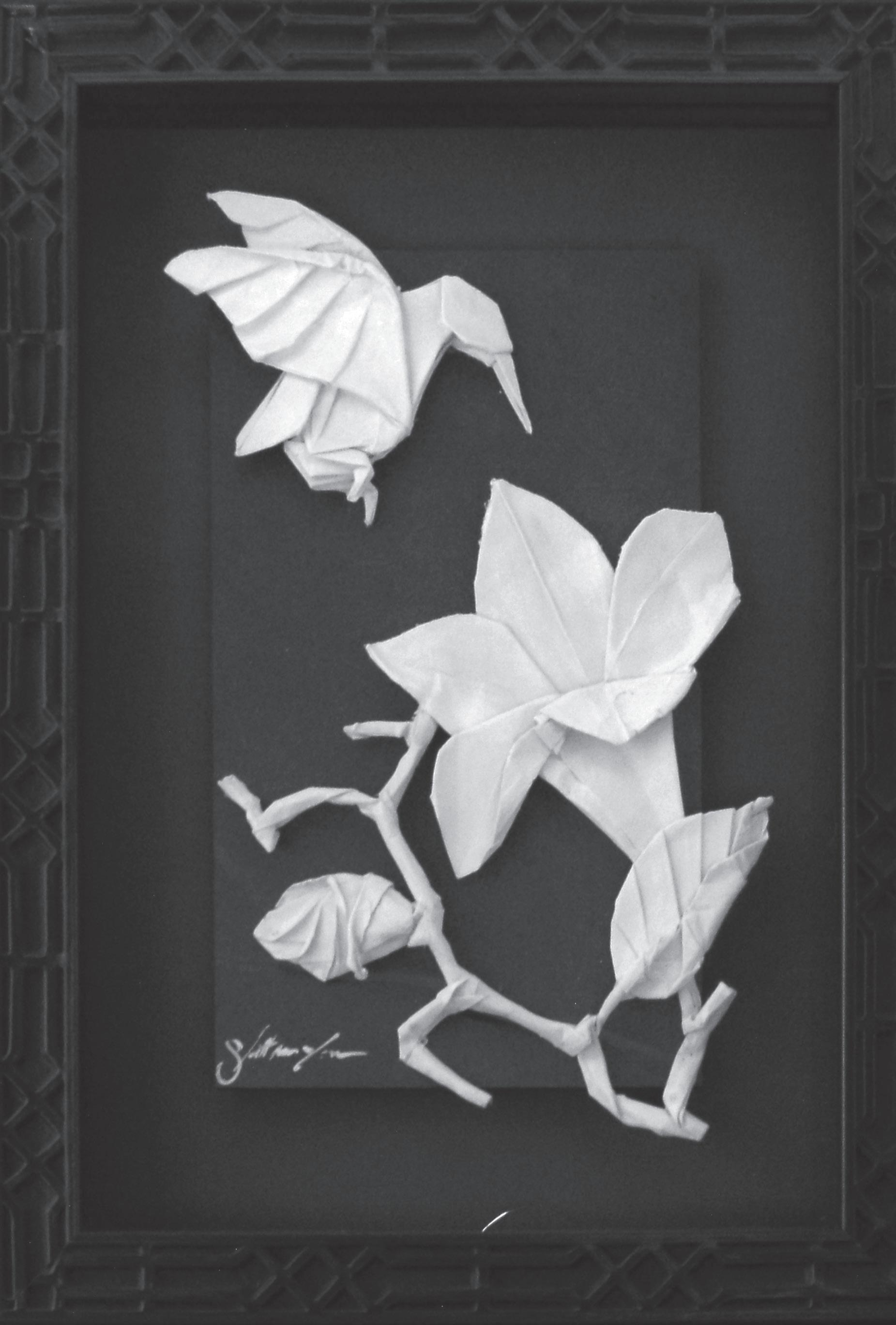
Excerpt from:
Alison Livingston
The first thing a man does when he falls in love with a woman is badmouth her to his wife. But it’s time for the truth, Lizzy. Lizzy the ghost. Lizzy-in-the-can.
I told you she misfiled my drafts. I told you she had a pestering voice. I told you she let her hair fall from her bun by the early hour of eleven-o’clock.
At times I said I would get her fired.
Don’t be offended by this. Don’t be cross because I call you Lizzy-in-the-can either. It would have made you laugh. I know it would have. And I wonder if you still laugh anyway.
I used to sit and try to pinpoint the moment I knew it was happening. She kept asking me what records I listened to. She bullied me. I sighed as she went through my collection. Can you believe she had never heard of Gillespie? I put it on for her and she didn’t even sway. She just stood like a scientist and tried it out on her ears. It was during “A Night in Tunisia” when she said, “We’re going to find a place.”
“What place?”
“A place only we know about.”
And in case you’re wondering what she looked like, you should know I hardly remember. There was something to do with brown hair and dark brows. She had freckles. And her eyes were a class of green. But the way all those parts went together scatters like stardust in my memory, and there are days when I can’t believe I forgot.
But the place. She had mentioned this place. And since I thought she was referring to a hotel—or perhaps a broom closet—I stood up to leave. The nerves were firing. It scared me.
But then I discovered the note folded into the inner lining of my hat that I kept on the hook by the door. The note read, “This is our place,” and, “Hi.”
I won’t lie to you and say it didn’t give me a thrill, this note. I wrote back a truthful answer: I was tired. You see, Lizzy, our son had not slept for the entirety of his life, and you did, but I never could. Her hat was red. She only wore it when it rained. It was a spare hat, really. It never left the hook. I hid my answer in there. The next day my hat held her reply.
“I’ll have to wake you up.”
Excerpt from:
Terry Jackson-Mitchell editors’ choice: nonfiction
On the hot summer night of August 20, 1980, I was jogging with three friends in Liberty Park in Salt Lake City, Utah. My friends Ted Fields, who was twenty years old, and David Martin, who was eighteen years old, were both black. My girlfriend Karma and I were fifteen years old and considered “white,” although my mother is a first generation Mexican American.
On our way home from the park, we were shot at in the crosswalk on 900 South 500 East. At first I thought the shots I heard were leftover firecrackers from Pioneer Day, July 24. I assumed someone was throwing them at us because we were “race mixing.”
With the first shot, my arm, neck, and legs were bleeding and felt like they were on fire. I couldn’t figure out where the firecrackers were coming from. There were no cars on the street. I couldn’t see anyone near us.
Dave said, “They got me.” We all laughed nervously and said, “Good one.” He fell. His blood was everywhere and the shots kept coming. We all tried to catch him and carry him to the end of the crosswalk. The blood was such a brilliant red color against the black pavement. Then Ted fell. Both of the men were on the ground, and I went into a state of shock. All I could hear was gunfire. All I could see was Ted’s face.
Ted kept telling me to run. I couldn’t hear him but I could see the words he was saying when I looked at his contorted face. It took a second for me to absorb what was really happening. “I can’t leave you here!” I said. The shots kept coming. I had the strongest telepathic message from Ted at that moment. “If the situation were reversed you would want me to run. RUN!”
I ran as fast as I could into a field of four to five foot tall grass facing the crosswalk. I thought I could hide from the sniper there, but something made me come to an abrupt stop in the middle of the field. I didn’t know it at the time but I was running right to the killer. I felt like I ran into an invisible wall and I stopped. I couldn’t move. I never saw him. Karma ran into the field and grabbed my arm. A brave woman came outside and ushered us into her basement apartment.
I kept hoping I was having a nightmare. “This isn’t real,” played on a loop over and over in my head. But it was real: by the end of the night, Ted and Dave were dead and I was covered in bullet fragments from bullets that passed through Dave and shattered on the pavement all over my petite, ninety-eight pound body.
We had been shot by Joseph Paul Franklin, a racist serial killer who killed at least twenty-two people in twelve different states. He was the man who shot and paralyzed Larry Flint for printing pictures of a black man and a white woman having sex in Hustler magazine. He was trying to start a race war all over the country.

Excerpt from:
I.
I looked Buddy in the eye, taking my familiar spot beside him in the cemented over portion of the yard that had become his run. He had a devilish humor in his dark brown eyes. He wagged his furry curled tail and made a half bark through his whiskery face. He looked like a grumpy old man, and at 17 years old he was a grumpy old man. His teeth were nearly gone, a filmy whiteness had crept over his eyes.
“You’ve always been there for me,” I said, leaning my head against his. “Never die, I don’t think my heart could take it.”
II.
A flurry of tails wagged as the herd of children my father affectionately had called the Beach Brood stepped through the grimy grey walls of the local Humane Society. All varieties of dogs and puppies surrounded us Beach pups as we picked them over one by one.
Each was a possible addition to our new home and our overgrown family.
The two dogs barked as if they’d never known they could, both jumping and flipping, their floppy caramel ears occasionally tripping them up and sending them face forward into the wire fences that separated them from their prospective families.
“These ones,” I cried, having adored cocker spaniels ever since I saw LadyandtheTramp. If I could not have a bulky Dalmatian, then I needed these dogs.
My mother stood frozen, her hands clasped before her chest, a look that was a mixture of warmth and sadness in her eyes.
“Buttons,” the paper on the crate read, as well as listing the relevant information about the forlorn, cowering, silent mutt within.
My dad wrapped an arm around her shoulder. “Buddy sounds better.”
My mother nodded.
III.
“I’m afraid,” my mom muttered, shame facedly, as she pushed me out the backdoor of our home and into the barren wasteland that was our backyard in the hottest days of summer.
“It’s really cruel of you,” I said, scathingly, “to have your child check to see if the dog is still alive, even worse when you make me check on grandma.”
“I don’t handle death well.”
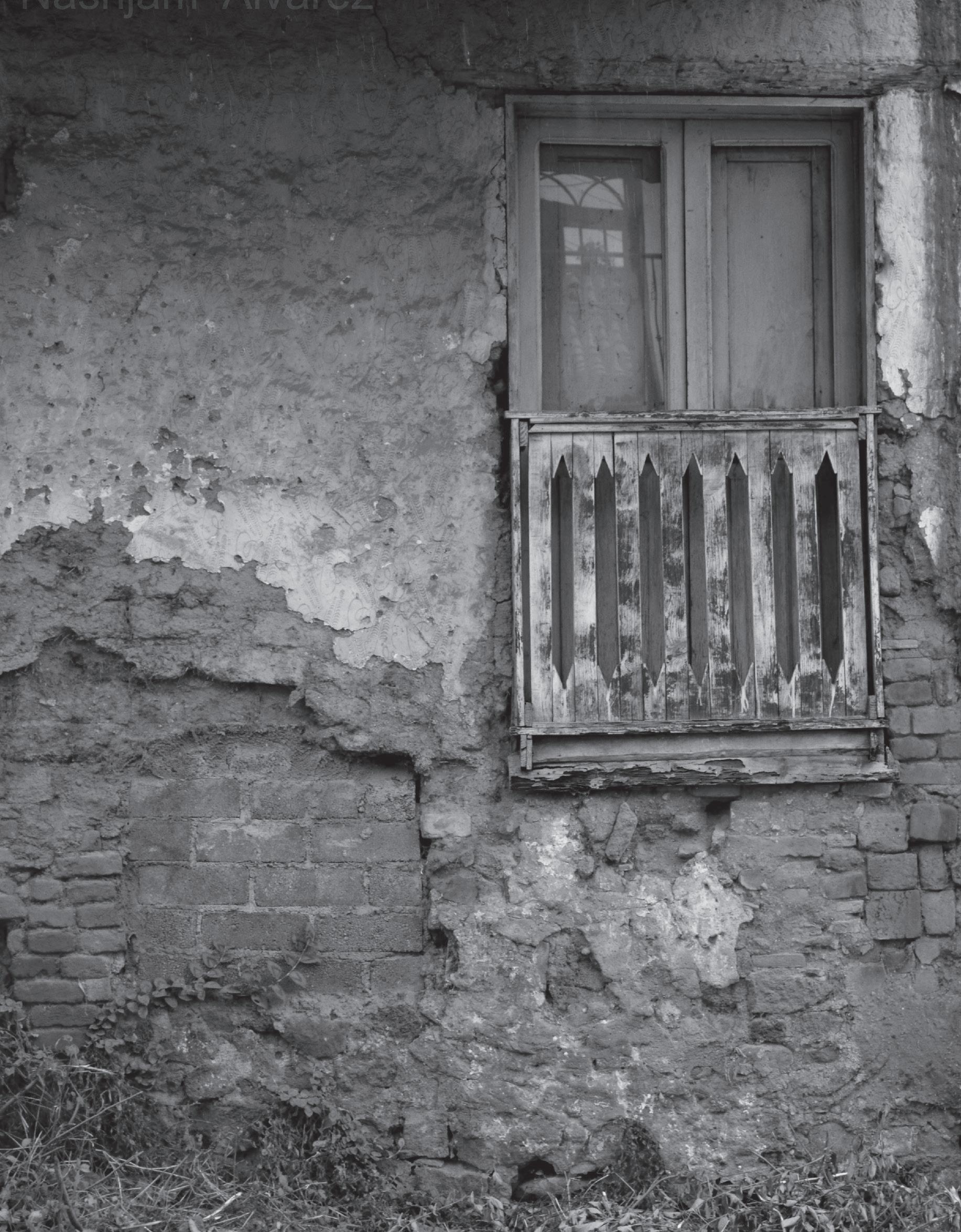
Nashjam Alvarez
Alison Livingston
I have arranged all my backyard blinks
My marching uniforms, oh happy uniforms I have coaxed you gently and so
Flood equally about me
For I am a bad sale
In your brief shade I regard
How you carried a diplomatic index of Unnecessary Chance
When I first read your name And sat funnily as voltage worried over Meek ol’ bones
And months, you puttered around this criminally burning amateur
Embarking on a debut
You saw me, didn’t you? You knew.
Flush up, muster up
Set your skew-eyed smack at home no longer Firm up, Bird
Slow frequencies don’t become anything And I?
Oh I?
A bloodguilty twerp
A stick in the spine
Red-handedly a bad sale.
Rope down and awry
Greenfly
As grave laughter dribbles on your porch steps
For I am a bad sale
A coffin hitch on paper
Industrial strength and purple-tinted
Rope down and awry
So I can arouse a guilty rest
And retread that tragic second
When it all blashed into change
And old-fashioned fuss
When they knew about this anonymous us
And you
with sense and good passion
Cracked ugly

Excerpt from:
Nathan Fako
Cold, he stood up and put his hands in his jean pockets, walking around the small room without a purpose. There was a night table next to the head of the bed, atop which a few old books rested. He hadn’t touched them since coming here, too busy to be bothered to move them. Picking them up now, he opened the top drawer and put them inside next to a stack of old papers. The papers drew his interest so he removed them and skimmed through. The documents were not of any importance. They seemed to be old sheets of notes, a bank statement, and a couple letters from friends that must not have been that important.
It baffled and amazed Andy to think of the people he knew now living completely separate lives from his own. The extent of his consciousness was so limited yet it perceived each thing, each person, as intimate and personal. His mind began to speed up and from its nucleonic tresses he felt a tide coming in which had been absent from him for some time.
Seeking to calm himself, Andy moved to the window, as was his custom. He resumed his cross-legged position and put his hands against the glass again. The cold was an anchor. It moved from the depths of the hardwood floor up through his bare ankle resting there. It penetrated past his one sock, paralyzed his toes, and stretched upward into his legs. From his fingers it crawled down like the tickling legs of spiders, spreading up to his bent wrists and gripping there. He closed his eyes.
How could he have forgotten about the grief? How had Andy never been able to grasp the guilt that always came hand-in-hand with the aforementioned before today? He breathed deeply and shut his eyelids together, bracing for the wave rather than trying to make it go away. By now he knew that it wouldn’t go away through intentionality.
When it was over and Andy felt like moving again, he found his way to the bed. The covers were cold to the touch, but he knew his body heat would turn the bed into an oven as soon as he was cocooned. He rolled in and pushed the pillows aside, electing to lie on his arm instead. It was the middle of the day and there was work to be done, but he didn’t feel like doing anything. In his head, he mutely observed the contrast between how he’d felt after the closing of the door and how he felt now. The elation Grace had given him through the slightest gesture, and the guilt and terror he felt towards his absent, buried mother. How could this disparity exist within such a small span of time? He thought of the bee, of its flight, and of the moment it collided with the window pane.
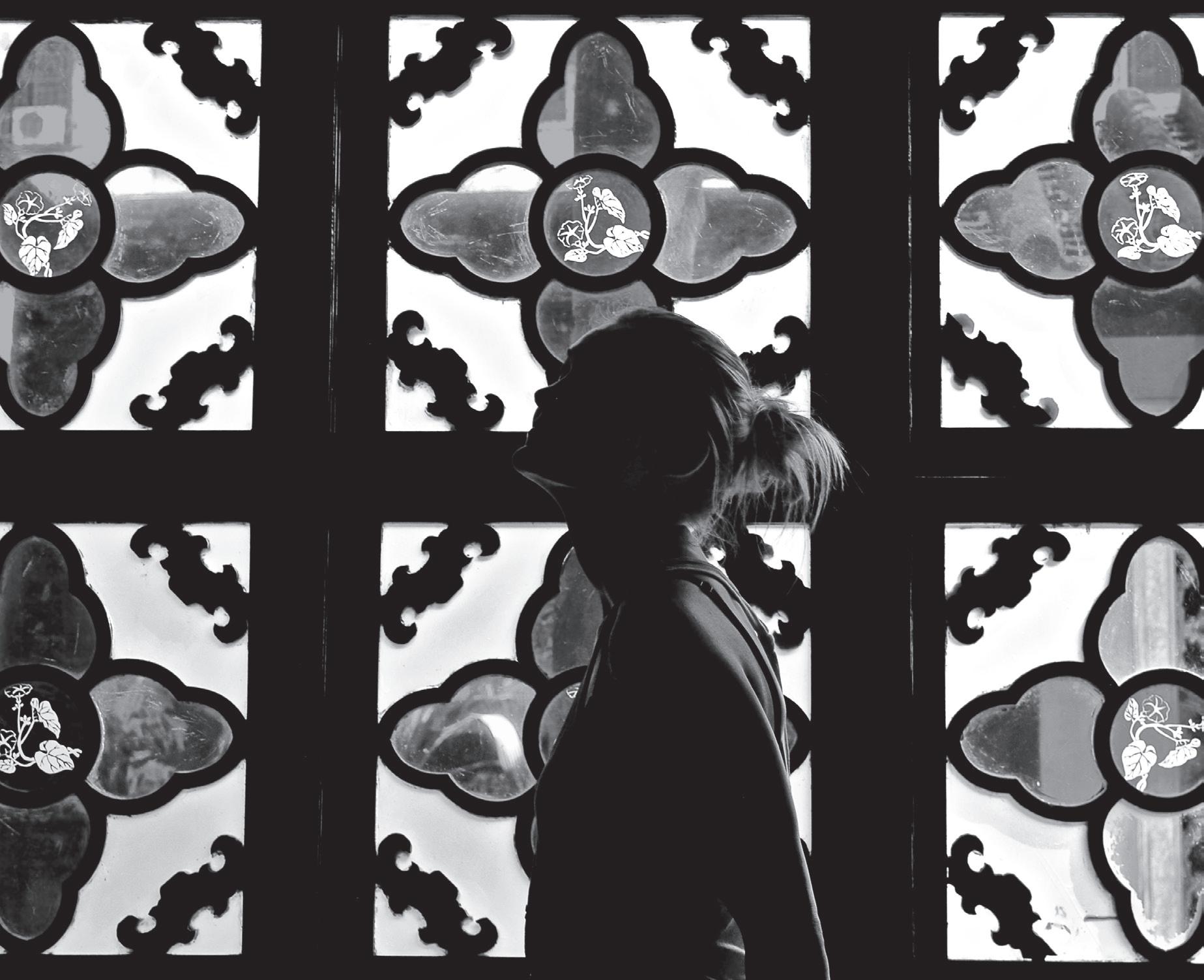
Excerpt from:
Emily Beck
“Doctor Miller, I’m fine and I don’t need the wheelchair; my left leg works and so do my arms.”
“Jenny,” he frowned, “the wheelchair lets you sit, to give your arms a break. And the new leg will do the same thing.”
“Doctor, we’ve been through this. I don’t need the new leg. Just like I don’t need the wheelchair! If my father has to live life blind, I’m going to live life legless.”
“Don’t you miss dancing?” he asked, putting the nylon cover back on her leg.
“Yes, about as much as I bet my father misses watching me doing it. He never missed a single performance.” She grabbed her crutches and got down off the table before another argument started. Jenny hobbled out of the doctor’s office as her mother stayed behind and tried to convince Doctor Miller that her daughter would come around. Doctor Miller suggested a different approach for her next appointment.
When Jenny and her mother got home, Jenny’s father was waiting for her.
“How did it go?” he asked his wife as she entered the house.
“She refused again. I’ve left it up to Doctor Miller. I don’t know what else to do!” He gave her a kiss on the forehead and sent her through the door. He waited for his daughter. She rolled her eyes at him.
“Don’t roll your eyes at me,” he whispered.
“Daddy, how did you know I did that?” she asked, giving him a hug.
“You always rolled your eyes when I waited in the doorway for you.
Come in here. I want to talk to you.”
“Dad!” she whined.
“Don’t ‘dad’ me. Help me to my chair,” he told her as he closed the door.
“Dad, we’ve been through this. I don’t want to walk again if you can’t ever see again.”
She slumped herself into the sofa and wiped her eyes. “A new leg will let you drive, you’ll be able to go to prom without crutches, and you could dance with your date. I haven’t heard a single note of music come from your room in months.” Jenny stood up with her crutches and
hopped over to her father.
“You can’t see me dance, and so I will not dance again! I don’t want a new leg!”
The truth was, she did want a new leg. The thought of not having to use those awful crutches anymore was reason enough to do it, but every time she saw her father trip or stumble because he couldn’t see, she immediately changed her mind. She had her mind made up.
On her next visit, the nurse met Jenny with only a smile. Jenny smiled back and said, “Thank you.” She hobbled slower than usual. Another discussion about the leg was not what she wanted right now. What she wanted was to be left alone. Summer was coming and she didn’t want to spend it in more doctor offices. She wanted to travel with her friends, not go through weeks of therapy.
As she entered the room, a strong smell of cologne met her nose. She had to admit that it was a welcome scent compared to the normal hospital smells she had grown accustomed to. She turned the corner and found Doctor Miller talking to a tall, slender man with grey hair. She cleared her throat to let them know she was there.
“Jenny!” Doctor Miller almost shouted. “Take your place here on the table.” She looked at her mom who shrugged her shoulders. “Jenny, this is Mr. Watkins.” Doctor Miller motioned for him to come over and he shook Jenny’s hand.
“Who are you?” Jenny asked.
Before Mr. Watkins could reply, Doctor Miller spoke up. “He is the man who is has given us the funds to make your new leg a reality.”
“Mr. Anonymous,” she mouthed to her mother, who sat there with that smile on her face, the smile that spoke of hope. Jenny sat up straighter. She was prepared to give this “Mr. Anonymous” the same speech she had given Doctor Miller. A small smile came across her lips. If he didn’t know what she was going through, he would soon. She quickly removed the smile, not wanting to lead anyone to think that she had changed her mind. “I asked Mr. Watkins here today because I felt that maybe he could help with your resistance to this new leg.”
“Mr. Watkins,” she started. “I appreciate what you’re doing for me, but it’s not that easy. There is so much more to this than you know or could even begin to imagine. My father — ” She began to cry and looked away. Mr. Watkins stepped closer and placed one hand on her shoulders. He raised both pant legs and revealed two metal bars. Jenny gasped.
Matthew Curtis
I understand why you think He doesn’t exist, why lately every scholar says He can’t, because I feel that way too sometimes; because I can’t explain terror; nor can I explain how, when my face has crumbled into my hands, something comes that soothes.

Excerpt from:
editors’ choice: Fiction
Zack Brown
The college girl in the leg cast was telling me how, when she was a little kid, she had a puppy that strangled itself to death on its own leash. Her dad had to tie the puppy up to a kitchen chair at night or else it would roam the house chewing up everything, all their shoes, everything. Her leg cast was resting on my lap. I was almost old enough to drive. My parents were gone and this was my sister’s party. Things had changed, you could tell, and so I was going to, too. And this girl was my first step. “Where was I?” Rachel said, staring into her phone.
“Your puppy strangling itself?”
“Yeah, okay, so the little bastard pulled the chair across the kitchen before he actually died. I swear that night I heard the chair dragging across the floor. Thought it was just a ghost. You know how dogs smile when they pant? They look, like, happy? I still remember that smile. So don’t get a puppy. They’re cute, but cute things are more disturbing dead.” We’d broached the subject of strangled puppies when Rachel said I reminded her of a puppy, particularly of her choked puppy, with its eyes bulged out of its sockets, with its nose dry as an eraser, with a strained Alligator smile on its face. Of that puppy, I reminded her.
My hand was resting consciously, bravely, on her cast. Her cast was hard and so was I. She blew a cloud of smoke at me, over me, thinking she looked cooler than she did. I had that effect on people: my inoffensiveness making them brazen, indulging inner illusions of movie stars playing street punks. “Amanda’s brother,” she said, looking me over. She’d said that a few times, considering the novelty of it. Me— Amanda’s brother. I didn’t know this girl Rachel well, but I knew she belonged to that group of my sister’s friends that The Parents weren’t allowed to meet. I knew one thing about her, actually: she was sitting alone on the couch, looking like she was waiting for someone; I thought he was me.
I watched smoke seep into our house: the furniture, the carpet, the walls, the cross, our family pictures, and the family emergency plan I had hung up years ago. A kid was just rolling joints at the table where we never ate. He’d been there all night meticulously rolling joints with single-purpose tranquility, passing them out to the crowd of beggars, like my dad manning the grill on the Fourth of July, handing out hot dogs to all the cousins. Only smoke in the backyard, remember guys? After midnight, the rules went out the window. It was bugging me. But I was trying to chill. Last time I’d seen Amanda, I asked her if she had any idea how she was going to get the smell of weed out of the house before The Parents came home. She ruffled my hair, pretty drunk, and told me not to worry about it, and to get away from her.
At least I had an alibi: I was at my friend’s. My sister didn’t, and
there would be no saving her. I hoped she enjoyed her last night on this earth. I hoped this was worth it.
“I won’t get in trouble if they’re not coming back,” Amanda had reasoned. Even though I was too old to believe that, I went cold at the thought that my parents might have abandoned me—like an unwanted puppy in a box on the street. Amanda was betting that it wouldn’t matter, because nothing did anymore. They would be too preoccupied with divorce to reprimand her for throwing a little party. “Little” ha ha ha. Because they weren’t coming back together, Amanda said. Something vital broke, and things were different now, haven’t I felt it? Or are you that thick Nick, really?
Mom hadn’t come home from work on Thursday. She was staying with grandma. She needed some time. Dad, after a few long hours of staring at himself in a blank TV screen, was called away on an “emergency business trip.” He told us he had to go and left us some money and the door slammed shut.
“What’re we going to do?” I asked helplessly.
Amanda shrugged. But I saw: gears turning mischievously. Here we stood in an abandoned house. “What are we going to do,” she repeated. “Good question, buddy.”
The Parents surrendered the house; now it belonged to us. “Don’t you see? The whole thing’s in pieces. This is like East Berlin. The rules are kaput. And we need to take advantage of it. We deserve to, all the shit we’ve been putting up with,” Amanda said.
Well, Amanda deserved to. She invited me to get out of Dodge, go to my friend’s house. I got angry, and told her I was staying. She reminded me how I got when I was stoned, i.e. nervous and depressed. Amanda got me high once, in the bathroom we shared. “This is a really irresponsible and terrible thing to be doing to you,” she said as she handed me her pipe. “I’m ruining you!” as she lit the bowl. “Why am I doing this?” she asked. I thought it was going to be fun, but it wasn’t. I became anxious, really started hating myself, and thought everyone must know we were high, even the neighbors, whom I thought I heard talking about it, the smell, and the cops were coming, and my feet were cold. All my socks felt wet. I took off one pair and put on new ones and those were wet too.
Now I was a little stoned and felt okay. Acceptance: the levees were broken and the city abandoned, so what? I felt mellow and hollow. I was going to hook up with this college girl. I would tell everyone, all my nerdy friends, in places where girls my own age whom I actually liked would overhear.
And I swear I was about to lean in and plant one on her when he showed up. A lanky kid wearing a Flaming Lips t-shirt. Red eyes under his glasses darted from me to her, and the casted foot resting on my crotch. “Cheddar!” Rachel said. If Cheddar wasn’t his birth name, he might have got the nickname because of his hair. Shoulder-length greasy blonde hair that looked stiff as a mop. Go away, I thought. You cockblock. Go.
Excerpt from: Gone
Anna-Korrine Hancock
December 4, 2012
Darkness surrounds the hospital and the moonlight illuminates the sky. I have school the next morning but I don’t want to leave her. What if she just doesn’t awaken the next morning and I’m not there, I think to myself. I don’t want to leave her. My backpack is heavy, occupied by pages of homework I haven’t done in the past week, along with clothes for the next day. I lay out a blanket on one of the chairs in her room while my dad does the same. The hospital has a you’resurrounded-by-people-but-feel-alone feel. A sadness creeps the halls and weeps on to my face. “People die here,” I realize. Shivers crawl down my body. I should have brought socks.
December 12, 2012
She isn’t getting much better. Neither am I. I am failing five out of my eight classes and on average am only going to about three school days a week. The thought of losing my grandma scares me. Some days I’m just too sad to get up, let alone go to school where I have no friends to talk to. School has gone from my first priority to my last.
“Hi grandma. I’m back,” I say as I grab her hand. “Will you just go home?” she replies. We both smile and know I’m not going anywhere.
December 20, 2012
After a few weeks of being in the hospital, they decide she can live at her sister’s house and she’ll take care of her. That means she is getting better, right? That’s what I think. Days at a time I am here at my great aunt’s, sitting by my grandma’s side. Crying. Pain strikes her voice every time she talks. A haunting smell of medicine and time running out fills the room she stays in.
December 25, 2012
Snow dwindles on the other side of the window sill. My family is all gathered together at my great aunt’s house. There is a slight happiness and warmth about this Christmas. It’s not exactly what I would have imagined Christmas day, but I get to spend it with my grandma and I wouldn’t have wanted it any other way. I fade away from the rest of my family to my grandma’s room. I pull the creaky fold out chair closer to her hospital-like bed. I kiss her soft cheek and sit down with her hand in mine. With weakness in her eyes, she looks at me and smiles a gentle smile.

Luis Chavez
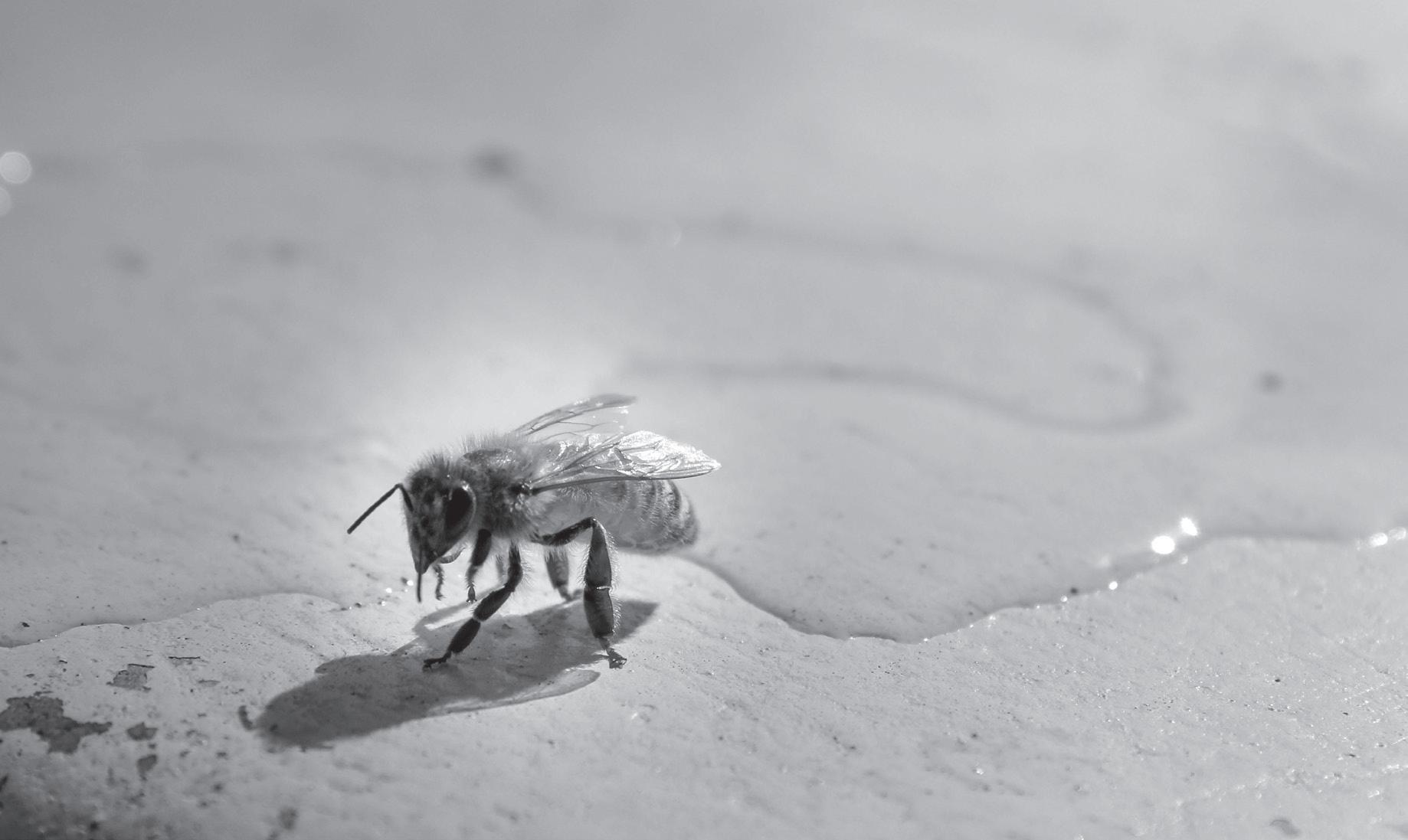
Erynn Peyton
“Sometimes I sit there and I just think I can’t take it anymore. You know? Like, I’m fed up. My life is going nowhere, and I’m stuck in this dead end job watching the bugs.”
“How’s school going?”
“I saw this one. He’d gotten inside. They always get inside; they’re all over the floor. They get on my desk and stuff. But I saw this one on the wall in front of me. And he just sat there. I wondered what must it be like to be a bug on a wall like that? Like, as far as you can see the world is just painted drywall, or whatever. I don’t know what walls are made of. And you don’t even know what the wall is, or what anything is, cause you’re a bug. But that’s your world. That’s your version of reality. Somehow you found your way into this building, this huge building (like, to a bug, can you imagine how big a hospital is), but now
you can’t get out. You can’t even remember how you got there. And sure, let’s say you were just trying to find somewhere warm at night, but now you’re inside this building and there’s no food anywhere. And you just crawl around, and crawl around, and sometimes you fly, and you see other bugs like you but none of you can find any food and you’re all kind of on your own in that respect. You know?”
“Mm-hmm.”
“And so anyway, this bug was just sitting there on the wall, and after a while he started crawling again, towards the window. And when he got to the window, he crawled around on it for a while and then he just sat there again. At this point I was thinking, he’s got to be able to see light coming through the window, and maybe he can even make out the shapes of the trees and grass outside. I don’t know what their vision is like, but let’s just say, right? He can definitely see the other bugs crawling all over the outside, but he can’t get to them. You know? He’s got to realize something’s wrong. He’s so close to getting back out, but what’s he going to do now?
“Then he freaked. He just snapped, you know? He started flying, and he whirled into the glass over and over again, bouncing off, making little tapping noises each time. He was ballistic! He wouldn’t calm down. It was like he was rebelling against reality, because he knew he should be able to get past where the glass was but just couldn’t. And he had to be close to the end. He had to know he needed to get out to that grass and those trees to eat or he’d be finished.
“And that’s when I realized: we’re all that bug. We’re all trapped in here, this concrete world, walking on a sea of glass that we can see through but not pass through. We’re all stuck in this illusion, and just like the bug has no way of knowing he’s trapped in a building made by a species thousands of times larger and more intelligent than itself, we don’t know that we’re trapped in something. Something impossibly big and complex, something we can’t get a handle on. And we went there because we needed warmth, or something. We thought we were just surviving. But we wandered far and we lost track of who we really were while on the way. We separated ourselves from something we really need. Something spiritual, maybe. Some kind of meaning. You know? You ever feel like that? Like you’re trapped on the wrong side of the glass?”
“What happened to the bug?”
“I don’t know. He just disappeared.”
“What do you mean he disappeared?”
“I just said I don’t know, man! I don’t know. Maybe…”
“What?”
“Maybe he found a way out.”
Excerpt
from:
If you only knew how much I miss you
emina kahriman
It’s your birthday today. You would have been seventy-nine years old. I am standing here again in front of a birthday cake and you are not here. I am looking at it and I don’t know what to make out of my feelings. I am an emotional mess. I dreamt about you last night. You didn’t let me sleep at all which is okay; I love when you visit me even this way. We are all here, pretending, like it’s a happy occasion. We could not imagine how hard it would be without you here, though the grief has lessened with years. Celebrating your birthday as if you were still alive is our way of keeping you in our thoughts and our hearts. We blow out your candles and sing happy birthday to you, hoping you don’t mind. I can see tears in your husband’s eyes. He hurries and quickly wipes them off so others won’t see. He whispers with a choking voice, “My dear wife, I miss you so deeply.” We all sit down at the table and have a delicious piece of your birthday cake. We talk about you, how you were, what you did for this family and the forever-lasting memories that you left in our hearts.
We have all lost someone at some point in our lives; maybe you were too young to recall your emotions or just didn’t understand the concept of death. That heartache that springs at you all of a sudden and grips your throat when you hear a familiar song, reminds you of the loss. I was there myself. I was six years old, when I first experienced the loss of a loved one. Even though I was told that my grandmother was not coming back, I still did not understand why. My grandma’s house was full of people, yet so quiet. People went and came. Few words were exchanged, mostly nods, deep sighs and silent hand gestures. I was amongst my mother and my aunts, who were all slumped in one corner. My mother was being held up by her sisters so that she would not fall down. I was hiding behind her, clutching onto her skirt. Every once in a while she would run her pale, shaky hand across my hair and let out a choking sound. I would stick my head out to look at women around me. Their eyes were swollen red with tears on their ghost white faces. Some of them would whisper from time to time and they all looked like reeds in the wind, gently rocking from side to side. I felt pain, though not like the pain when I broke my leg for the third time or when I got a new doll. This pain was “quiet, deep,” somewhere inside where it has not hurt before. I saw through my eyes what many other children have seen and probably didn’t understand. Have we been scarred for life with moments like this and punished to relive those memories and moments just by losing another loved one?
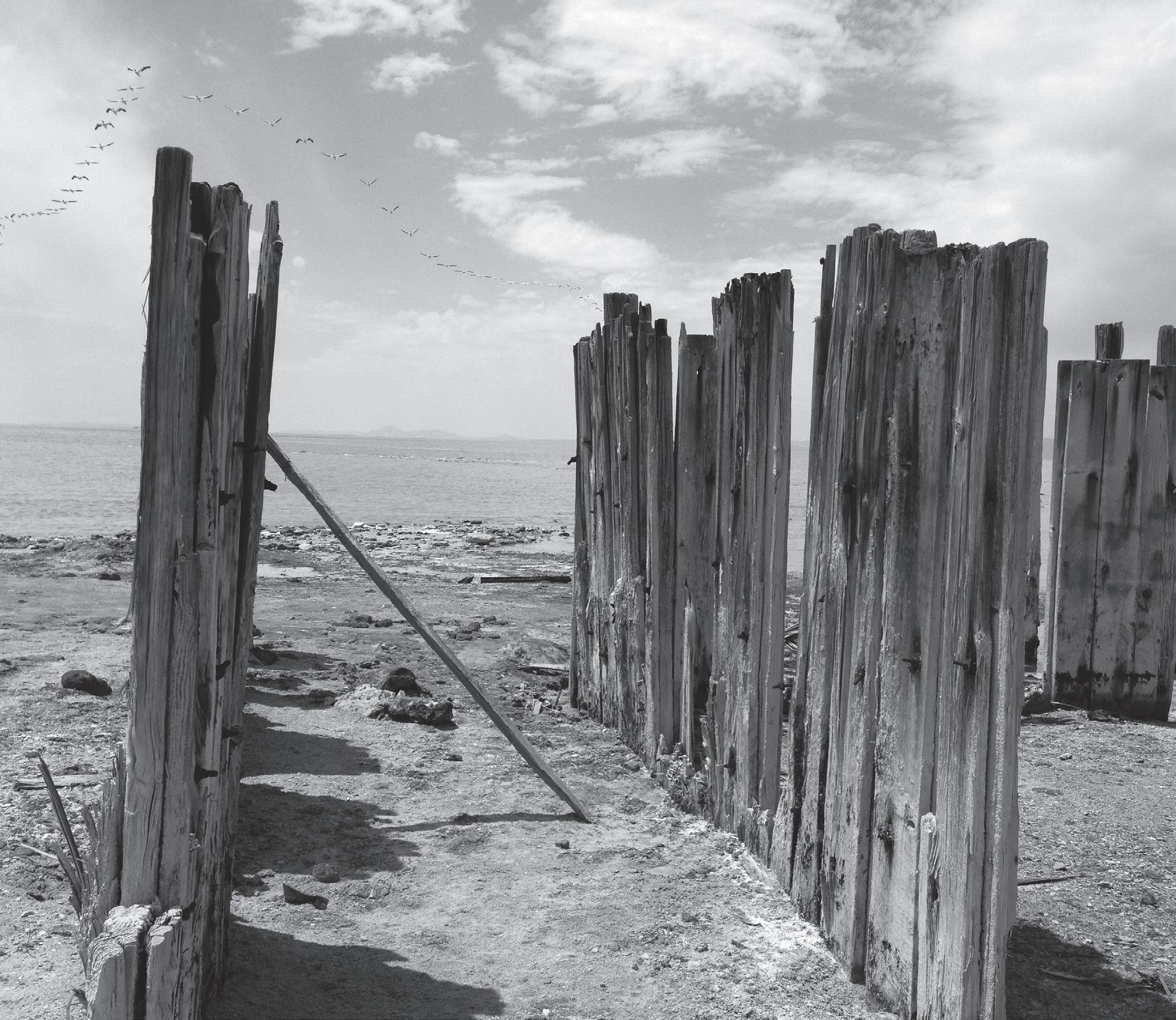
MARIA RODRIGUEZ
I really started to like my private school, until the first month ended. A girl named Zena, who was bigger than the rest of the class and twice my size, with dark brown skin and long black hair (not to mention the only one in her family and the richest girl in town), started calling me “Jícama with Chili,” trying to make fun of my freckles (jícama with chili is a Mexican snack; a vegetable with white flesh and dried chili spread over it). She also called me “Walking stick” (because I was skinny) and “Red ant” (because I have red hair and I turn very red when I get sentimental). My grades were also so low that she called me “Stupid.”
I asked kindly for her to stop and told her I was going to report her behavior, but she retorted that nobody would listen to me because I was tiny, she was rich and I wasn’t. I felt so powerless. I went home that day, and when my mom wasn’t home, I started crying hopelessly. Zena returned almost every day to call me names. To make it worse, I was playing volleyball one day and when the ball came towards me, I hit it wrong, and it hit Zena when she was eating her lunch on a bench nearby. No matter how many times I apologized, she never forgave me and found ways to call me names when the teacher was not looking.
One day, I got sick and tired of her calling me names. So I started plotting my revenge. “If only I could prove she was calling names, but how? If my other classmates heard her, they wouldn’t say a thing, because most of them were afraid of her, and so was I,” I used to think. Then I had another thought. I have to grow the same size as her and face her. At that point, I started eating a lot more to see if I could grow faster and larger, but it didn’t work at all. What I did notice was that my nails were getting longer. Suddenly, I had another idea. “If I could scratch her, I could show we have a problem if she doesn’t stop.” So I grew my nails to prepare for the day I could prove that even if I was tiny, she couldn’t make fun of me just because I look different.
One day after school, I snuck behind her, tripped her, and pounced on her. When she was on the floor, I jumped on her and made sure I had eye contact with her so she would know how serious I was. Then I demanded her to “stop calling me names, I really don’t like how you are doing that. I might look ‘stupid,’ but I will prove you wrong!” She scratched my arms trying to get me away from her, and I scratched her back (just what I wanted). I bet I looked as if a mouse was trying to attack an elephant. As I scrambled to my feet, I felt so much fear that she was going to get me back, so I ran home as fast as I could. An hour later, Zena and her mom came to my house. My mom called me over and asked me to give my side of the story. After her mom heard my side, she looked at her daughter with shame. She asked Zena if it was true, and she replied between sobs “Yes, mom.” My mom and her mom came to an agreement. They told us if we were to ever fight again, we would be severely punished. After they left, my mom held my hands, told me I could always count on her, and gave me a big hug. My mom didn’t use many words, but what she said was good enough for me.

Heber Oak
A picture, an image, a memory:
A new born baby
Boy’s tiny finger
Clutches Mother’s
Pointer finger.
His miniature seers collapse
Quietly dreaming on lap
Of Woman’s love
Gazing on from above
Shallow inhales of small-lunged-huffs.
She blinks to better see
Son: sprouted twig from seed
His lids open wide
Revealing brown-hued cries— Her own colored eyes.
He groans and he grows
From soils low: She, an oak tree; He, but a seed— She, Madonna; He, her grief.
Their roots deep in dirt spread
Intertwined together in quilted bed: He, her test; She, his breast
To which he lays his head in rest.
He sucks and weans and drinks; He yawns and fades and sleeps
While she singsAnd sings and sings A lullaby to help him dream.
No more than now—a memory: A mother and her brand new baby He, A spitting image of She; And She, the Oak He lengthens to be.

Excerpt from:
Hannah Dailami
Light: thenaturalagentthatstimulatessightandmakesthings visible.
King’s Peak is the first place to see the light in Utah. It reaches 13,528 thousand feet above sea level and hides away from the urban world. When the sun shows itself on the peaks, the light shines brightly on the dew and changes things. It is silent in the high Uinta Mountain range. Not a single sound can be heard, but the world beginning to awaken.
The sun comes up now. Its vibrancy crests precariously behind the purple mountainside, only enough though, to show it’s there but hidden just the same. The beautiful light seems to stay there for much longer than necessary. It doesn’t want to come out and be seen, but instead wants to be mysterious. The sun wakes up and the morning rises. It condemns the night owls.
The sun shines in through the windshield as I’m taken to school. The car ride holds an eerie quiet today. My mom isn’t telling me something and I can tell. I can always tell. Last time she told me about an abnormality in her mammogram, and the time before that about my grandpa’s failing health. My throat wants to ask the question, but it hurts too much to speak. The early morning atmosphere is tight and constricted. The air still holds onto sleep and the feeling of calm. Yet, I know that there will be no sign of sleep. Instead, I can hear a secret being whispered and lost in our muttered translation. I love secrets, but this time it feels quite different.
Work: activityinvolvingmentalorphysicaleffortdoneinorder toachieveapurposeorresult.
Some say that being a mother isn’t work; mothers just wake up and take their children to school. The rest of their day is spent sitting eating bonbons and watching soap operas. Mothers do more than that though. They are the mother: the person who watches, cares for, and teaches children to be good people. They are left with the responsibility to build and create little beings who become adults in the real world.
She tells me that she wants to get a job again. She needs help putting her resume together. She feels like she isn’t doing enough to help my dad financially. She feels like she needs to take some of the load off. She turns 46 this year and he grows closer to 61. Their age hasn’t always mattered, but she worries that her social security won’t be enough to sustain her when my dad finally leaves for good. She needs a
job. I think I’m mad at her for this.
The hike up to King’s Peak stretches 16 miles just one way. The trail opens at the base of a mountain with deep lines of erosion running laterally.
The small lakes and subtle tree lines showcase the best of the world. The snow stays on the mountain well into summer, with a slight breeze touching down on the wildflowers. Sweat from the nape of the neck keeps the air cool. The long hike was worth the journey.
Mother: a woman in relation to a child or children to whom she hasgivenbirth;bringup(achild)withcareandaffection.
My mother used to wake us by tickling our tired bodies. She turned on our bedroom lights in the winter and opened the blinds in the spring. The light flooded our unconscious minds and pushed us to begin to awaken. We anticipated the laughing and smile while pretending to be asleep. Our day became better when we woke up like this.
I always imagined myself as a mother one day. I’m not even close to marriage, yet I’ve picked out names that I like. I think this act of insanity is the result of something girls do when we are young; much like the cliché pairing of our crush’s last name with our first. So I always wanted to be a mother.
There is someone who resides on King’s Peak. She talks to the animals; they are slightly more comfortable with humans than should be natural. She touches all the individual leaves on the trees and runs her fingers through the stubbly grass. The high Uinta Mountain ranges is not kind to the faint at heart, yet she is comfortable here. Mother Nature belongs.
Aging: theprocessofgrowingold.
The sun is setting now as I exit the library and head towards the waiting red car. The vibrancy that once was in the air is gone. It dissipated this morning when the day began, and the new is suddenly old.
My mother has grey hair. I always thought it was understandable for my father to show signs of aging, but never for my mother. She still laughs the same but now she wants to get a job. She seems the same underneath but her surface is beginning to change. I think she is becoming like my father; serious and stressed. Things have altered for her. She needs an outlet.
The leaves on King’s Peak are changing colors and the temperature is dropping. The blanket of dew is now a heavy coat of wet cold. The winter is moving in with a swift wipe, leaving hiking and climbing only for the strong at heart. The season is changing and moving quickly in a new direction. It is no longer green and alive, but will consist of a white steadiness.
Emily Bradley the one you seek
Twist and turn through shadowed maze
To hear the call of the one you seek
You must try and break the curse
Set upon she who runs the waters
To hear the call of the one you seek
Before she breathes her final breath
Set upon she who runs the waters
That she may never see the light
Before she breathes her final breath
She prays to break the curse that holds her
That she may never see the light
And for all eternity she will cry
She prays to break the curse that holds her
Tight in its wretched arms
And for all eternity she will cry
But you struggle to find the cure
Tight in its wretched arms
You must try and break the curse
But you struggle to find the cure
Twist and turn through shadowed maze

Danielle Ainsworth
Editors’ choice: Photography
Your heart is too hot inside your ribcage, so you set it on the kitchen windowsill to cool just for a minute. A passing tramp smells it steaming there; it smells like nutmeg and tobacco. It smells so good he snatches it and flees. Now your heart rides the rails in a dirty bindle across the continental divide, while your body carries heartless on back home.
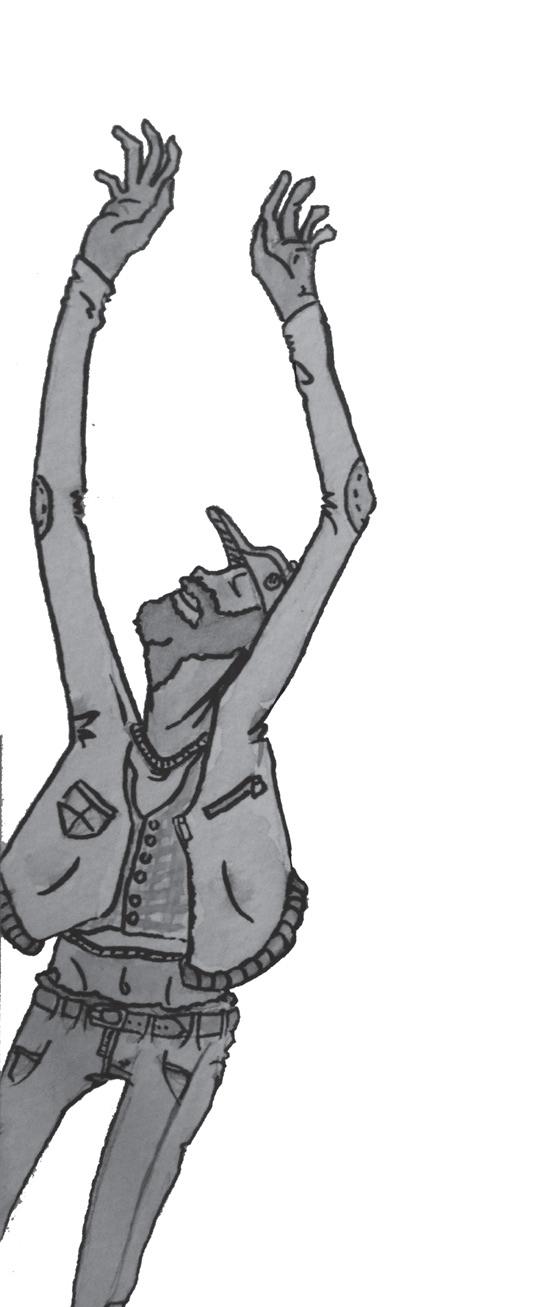
Kevin Aubry
It starts with the thoughts.
I have to stop them, with their taunting and their nagging and the fuel that they throw into the flames of my fury.
Silence.
I can feel them. My emotions. I can see them in my mind. They are tangible. First the rage.
The fire that is burning through my veins, making my blood boil and my head pound and my body shake with misguided passion.
It has to be extinguished before my thoughts can return.
I focus on the nothing and let the tension bleed from my body, like blood from a butchered pig.
I feel for the pig. I feel disembowled.
Next the confusion.
I can rid myself of it now, with the anger gone.
I refocus and look through the windshield at my wife from across the street.
She exits from our favorite dinner spot with another man, and she embraces him.
She’s supposed to be at a work meeting.
A friend had tipped me off this morning. “I’m telling you,” he’d said, “she’s cheating on you.”
Now I have proof.
And I can’t stand by.
I exit the car and let my feet guide me. My eyes lock onto her.
She doesn’t see me.
As I reach the middle if the road, she reaches into her jacket. Her hand comes out holding a business card.
I freeze in my tracks.
The man takes the card. They shake hands.
A car horn blares, and the driver yells a curse. I’m right in the middle of the lane.
Kate’s voice rings out.
“James? What are you doing here?”
Now I feel for the deer that gets caught in the headlights.
“I, uh, just got off work. I thought I’d surprise you.”
“Oh. And no flowers?”
I stare at her and sputter for words. She laughs.
“Honey, I’m kidding! To be honest, I’m just impressed that you remembered I was meeting with Mr. Anderson here tonight.”
I do now.
“It’s nice to know that you really do listen sometimes,” she says with a smile.
Excerpt from:
Nathan Fako
The cherry of his Marlboro cigarette glowed in the low light. “So I used to steal wallets.” After taking a long drag he ejected the soft smoke from his lungs. “Back when I first discovered what I could do. I was somewhere around fourteen, I think – we could start there. Imagine being that age and learning that you were able to stop time—but only when you held your breath. No one could move but you, but moving was hard. Imagine trying to run underwater, it’s like that.” A chuckle, another drag, exhalation. “Yeah, that was me. I knew I was sinning.” Finger quotes when he said “sinning.” “Or whatever, so I tried to reduce the harm that I did by putting their wallets back after I took their cash. I had asthma back then too, ‘cause I was fat. It made holding my breath for long periods pretty hard.”
“I see,” I said, noting how he said “used to” and “yet.” See, I wouldn’t have believed anything this guy was saying to me if he hadn’t just demonstrated his ability. I mean, would you? My wallet was still in his lap and I leaned against the brick alley wall with a bruise showing along my jaw.
“Yup,” Adrian uncrossed his legs beneath him and stood up. I hadn’t seen him grab my wallet at any point and truly expected it to fall to the ground but rather than that, it was simply gone. “Can you walk and listen at the same time? I’m going to buy us breakfast.”
“With my cash?” I nodded slowly and followed him from the alley while he laughed.
“Yup. IHOP suits me. Couple of blocks down.” He paused when I turned the wrong way. “This way. Don’t be a dumb tourist.”
Drunken crowds mulled around while Adrian and I walked in the gutter. He was silent for the first few minutes of the walk and I found my eyes drawn to the neon signs all around: “XXX,” “Cheap Drinks,” “SHOWGIRLS.” I’d planned to get away from women, not to be reminded of them. It was my own fault I suppose, it wasn’t as if I’d had a destination in mind after what had happened. I’d just sort of driven off.
“Where was I?” He finally spoke again just after we passed a particularly loud crowd outside of a bar. I could smell the alcohol. Some girls were barely wearing any clothing. I got distracted. Revenge would only cost a couple of drinks in a place like this, if that.
“Um,” I hesitated. “You were talking about being chubby.”
“Right, let me start at the beginning I guess, since we’ve got all night.” It was dark but I could still see how he turned his head back towards me a bit and gave a crooked wink.
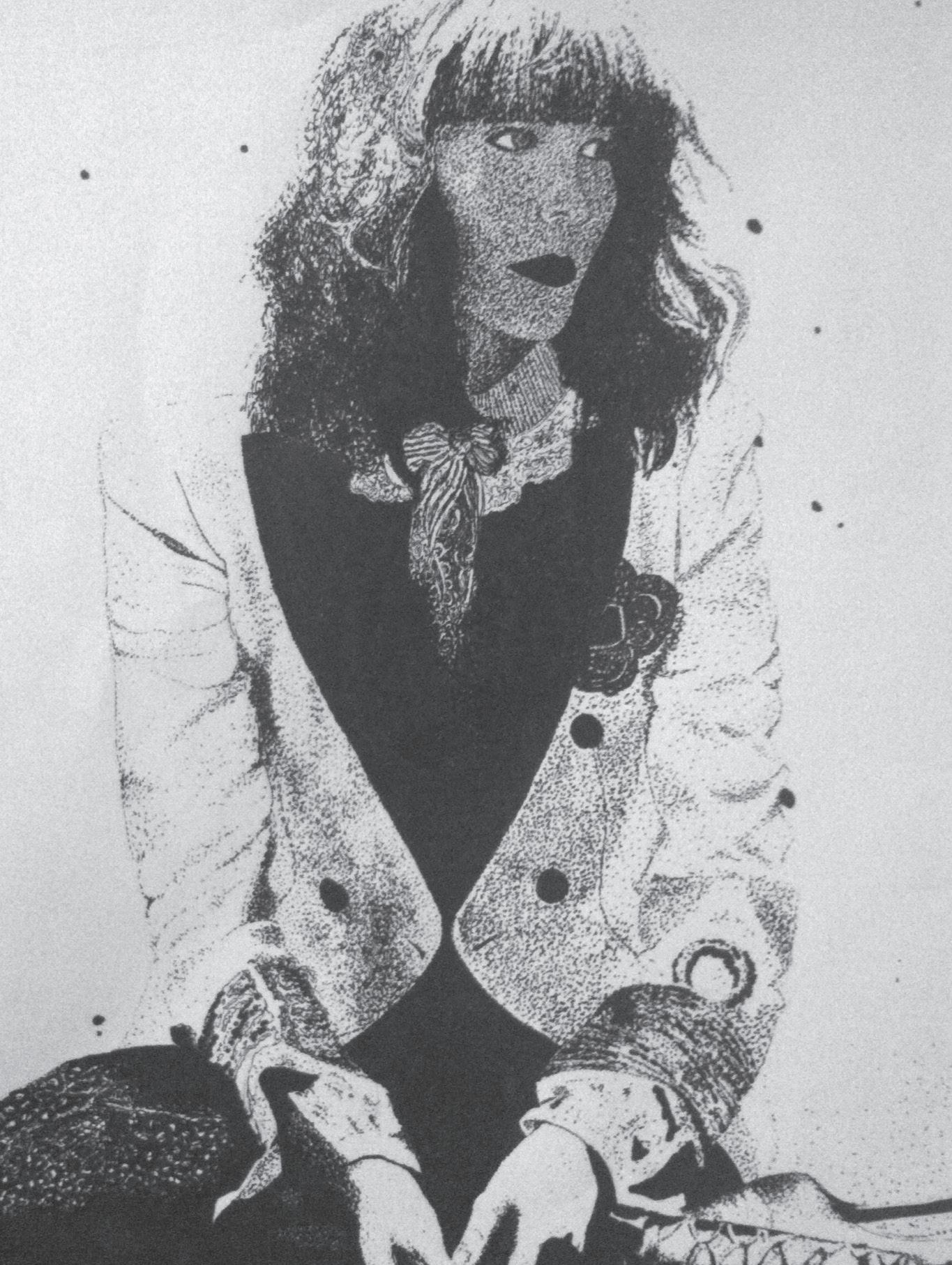
Excerpt from: Steph(en)
Kevin Aubry
Steph analyzed the painting displayed on the wall in front of her and laughed outwardly at Mark’s trite attempt at humor.
“I know, right?” she said. “I don’t get this whole modern art thing either.”
Inwardly, however, she marveled at the emotions that the painting somehow evoked in her. It was dark, swirling, messy, and yet somehow… optimistic. Like the artist was trying to project a feeling of intense but temporary pain that he knew he would eventually get through. Or maybe that was just how her mind interpreted what it saw. Whatever the case, she could at least appreciate the work.
Mark moved over to the next painting, and Steph followed a step behind so she could admire his ass. A small part of her felt disgusted, but for now, she could ignore that.
They continued through the trendy, modern-looking art gallery with Mark constantly trying to impress her by criticizing each piece with snarky, unoriginal humor. She didn’t like him much, which was fine; it only made her job that much easier.
Steph was analyzing some odd pottery that looked twisted and tortured when Mark moved on to the last painting on display. He had hated everything so far, but to her surprise he called out, “Now THIS is a painting! Wow!”
“What is it, sweetie?” she asked as she caught up.
Then she saw it, and her surprise evaporated.
Unlike the rest of the art they had seen, which even Steph had to admit had been a bit weird, this was a very realistic portrayal of a naked woman draped across a couch in a sexy pose. And here Mark was, proclaiming loudly right in front of his supposed date how much he loved it.
Oh, yes, she was definitely going to enjoy this job. To hell with his cute ass.
They had to walk several blocks through busy city streets to get to the underground parking lot where Mark had left his BMW. He talked about the stupid painting the entire way there.
“It looked more like a photograph. See, that takes talent. That is good art. That modern crap—or contemporary, whatever—a second grader could make better looking ‘art.’ Those people shouldn’t even be allowed…”
He went on and on, mostly saying things he’d already said two or three times that night. Steph had to resist rolling her eyes as he rambled on.“So, where to now?” he asked Steph as he settled into the driver’s seat a few minutes later. “You hungry, or do you want to catch a show first?”
She looked at him and laughed. “Sweetie, after seeing that painting...” she leaned across the center console and brushed her lips against his ear. She loved this part, but that aggravating little part of her was horrified, just like it always was. You’d think he would have gotten used to it by now, Steph thought to herself. She nipped at Mark’s lobe and grinned at the indignant rage that swelled in the corner of her mind, and then she whispered, “What do you think I want to do?”
Mark was quiet as he drove. Steph figured he was probably afraid of ruining her mood. They were still a good twenty minutes away from Mark’s place, so she decided to start getting prepared and do a final briefing with Stephen.
She knew it wasn’t necessary. She--or he, rather--or they? Steph still wasn’t even sure which one it was. They, she decided. They had done this a thousand times already, but regardless, she still liked to be prepared as much as possible. It made her feel a bit more in control of things.
She withdrew a large Zip-Lock bag of pills from her purse. The irritating part of her threw out feelings of amusement and annoyance. She almost rolled her eyes at herself because of the sudden outburst. Instead, she plucked out a couple of pills and swallowed them. She caught Mark glancing at her sideways.
“What?”
“You know how suspicious that looks, right?”
“Hm?”
“A giant bag of unmarked pills that you’re constantly taking out and popping into your mouth…”
“What, are you gonna report me or something? We’ve already been over this.”
“Yeah, I get it. Hormone pills, very important for whatever disorder. But why not just store them in a bottle? And do you really need that many with you, at all times?”
Steph was getting uncomfortable with the way the conversation was heading. She had to get him off the subject.
“Look, sweetie, the pills should be the last thing on your mind right now.” Her hand travelled up Mark’s leg, and he kept quiet.
With the pills out of the way, she decided it was time to talk to Stephen. She reached toward the familiar, testosterone-fueled part of her mind and expanded it until it took control.
GOD I FEEL DIRTY, thought Stephen, and then the control switched back to the estrogen-driven portion of their mind where Steph reigned.
Ohgetoverit, she thought. Yousaythateverytime.Likeyou didn’tseeitcoming?Seriously,Idon’tgiveyoucrapwhenyouscrew around with women.
David Lindsay
As I sift through piles of debris, a panic settles over me, The darkness looms and bares its teeth, creeping closer to consume.
No firewood- hands trembling, frantic black thoughts resembling wicked demons assembling. Shadows stretch across the room
Exploding into monsters, scatter out across my tomb
Blanketing the walls with doom
I wrap myself in ruined clothes, then cup my hands ‘round mouth and nose. My breath, the only source of warmth, as icy chill seeps through the walls.
I toss, and turn, and clench, and shiver, cold claws rend my flesh, I quiver
Like a trout removed from river. I hear wind billow through the halls,
Inviting frigid creatures as my hollow sanctum falls, Most ominous of nature’s calls
Through sleepless hours I survive, and all the heat the night deprived returns to me, I’m still alive. I shed my wretched, tattered shell.
Wiping the frost from my clothes, I feel a stomach pain, it grows.
I pick up something with my nose. A burst of life, I feel compelled.
Abandoning my shelter, I start heading toward the smell
Walking into frozen Hell
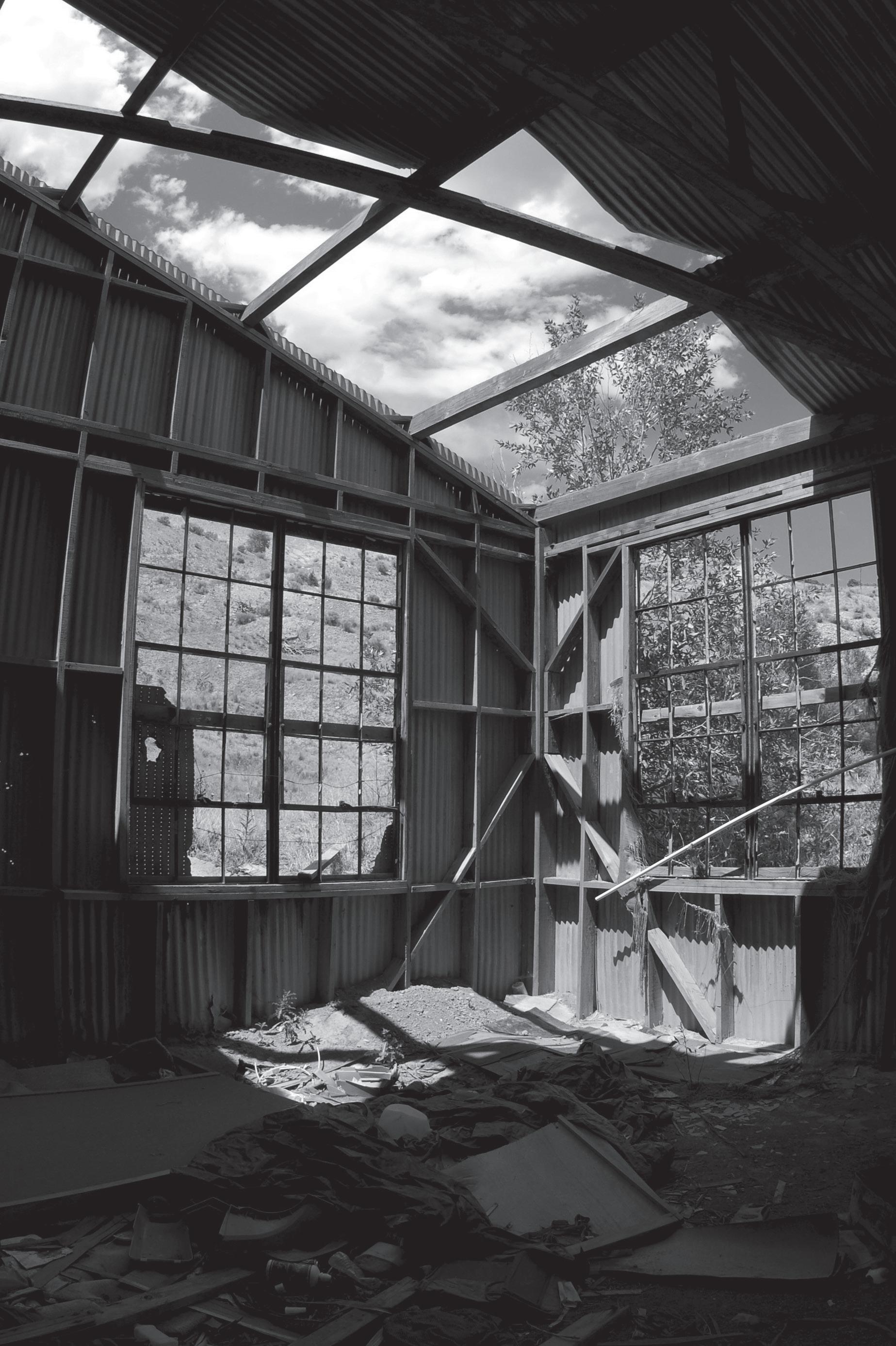
Isabel Perez
I’m not the princess That trades her freedom for your life. You claim your love to be a rose But all I see are the petals Scattered on the floor.
No one kisses a big mouth, You say, when I am honest. But I’m not trading my freedom For your love or your sloppy kisses.
I am not the sleeping princess, In a tower far away, awaiting your rescue, I am not naïve enough to bite into the Poison apple you claim is love. I am not the princess on her knees, cleaning your mess. I am not trading my freedom For the promise of tiaras and sweaty hands.
I am as compassionate as a bolt of lightning. I am as fickle as the ocean, I am the cold, cold, snow on mountains, I am the screaming wind, the stormy clouds, the forest fire.
I am a princess, But I am not a damsel, Or in distress.
I AM the distress.
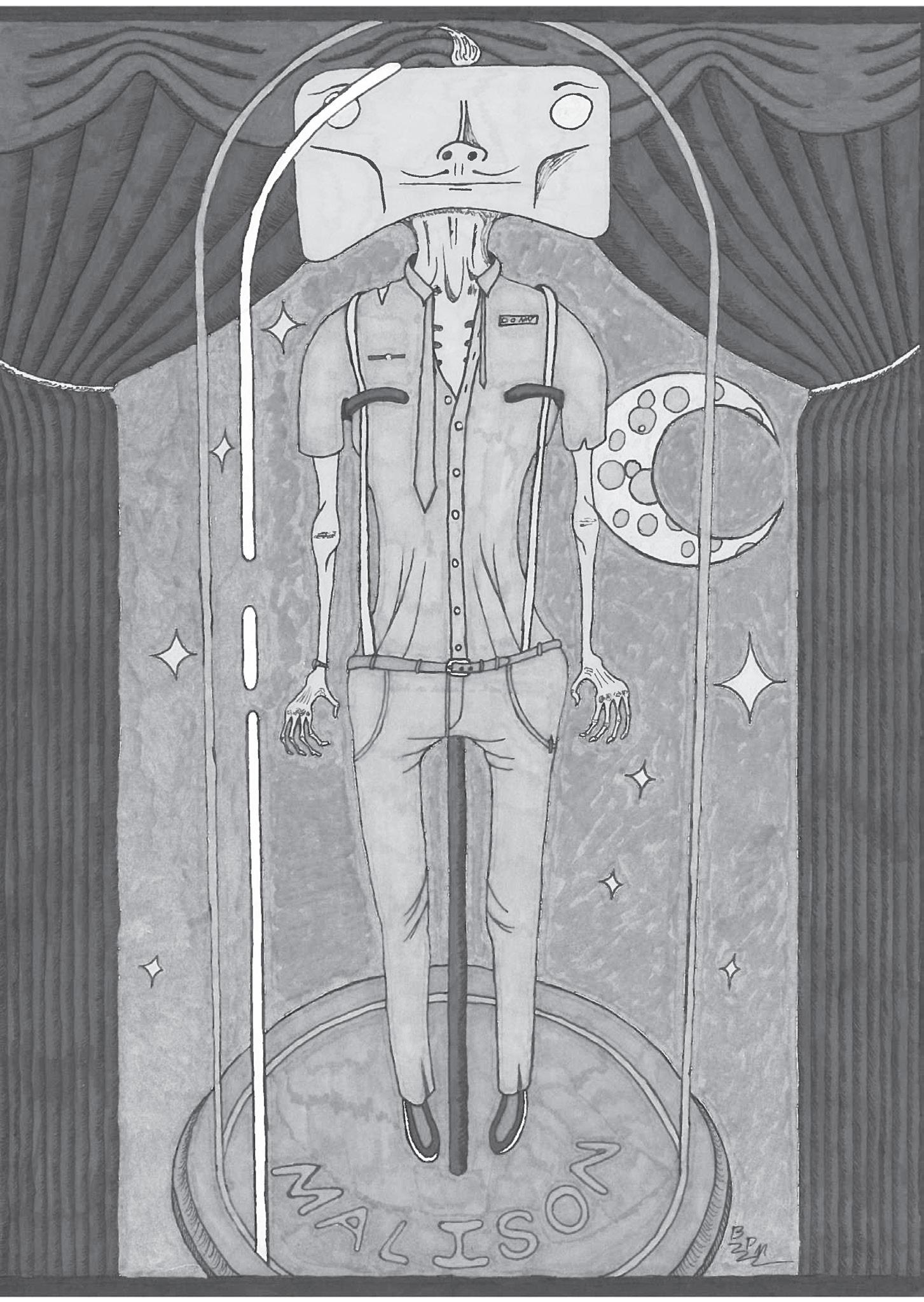

Gary Howard
There is never any mention of light of what it can mean to the smallest apotheosis of truth of the stories that we should remember but ultimately are unrecoverable we recognize their images their location undetermined and why light is left symptomatic and symmetric cosmic and encompassing a sentinel to eternity
Ashley Donnelly
I’ll always remember the year our farm turned to dust. Once grassy and fertile fields became snaking sand dunes in just months. Dust piles leaned against each west-facing wall. Everything soon began to peek out of the ground like old sun-bleached bones. I remember dust gradually swallowing Daddy’s tiller in the scrubby front yard. It was endless. It snuck through the walls, through sealed windows and doors. It snuck through the damp cloths we wore over our faces. It turned to mud in the lungs of our cattle, drowning them thickly.
Soon enough, our only neighbors were scrawny leafless trees and the wind-dried corpses of livestock; dead things attempting to convince us that life did indeed exist here, once. Color faded from view, from thought. Everything took on a gray tinge. My once pink-rosed sack dress was soon gray-pink. Momma’s once caramel-brown hair turned gray-brown. Daddy’s once bright blue eyes became just gray.
I remember Momma sweeping piles of dust out of the house every other hour. I remember Daddy staring at the horizon every single hour. The wind blew against his face, filling his wrinkles with dust. He became lost out there, smoking his pipe filled with dirt and stale tobacco, slowly rocking in the skeletal porch swing. Its rusty chains creaked back and forth, back and forth in the growling wind.
One afternoon Daddy spotted a large black storm cloud on the horizon. We were by now afraid to hope for rain. As the cloud crawled closer we couldn’t help but imagine cool clean salvation dripping from the sky, just as it used to. And the water wouldn’t run straight over the field, too rich and quick for the weak soil to hold. No sir, not this time. Each drop would fall deep into the earth, a nourishing feast for the roots of our desperate crops. The cloud loomed closer still and we saw its true shade: gray-brown. I nervously pulled loose threads from the hem of my sack dress. Momma swept and wept. Daddy smoked and stared. It was just another dust storm.
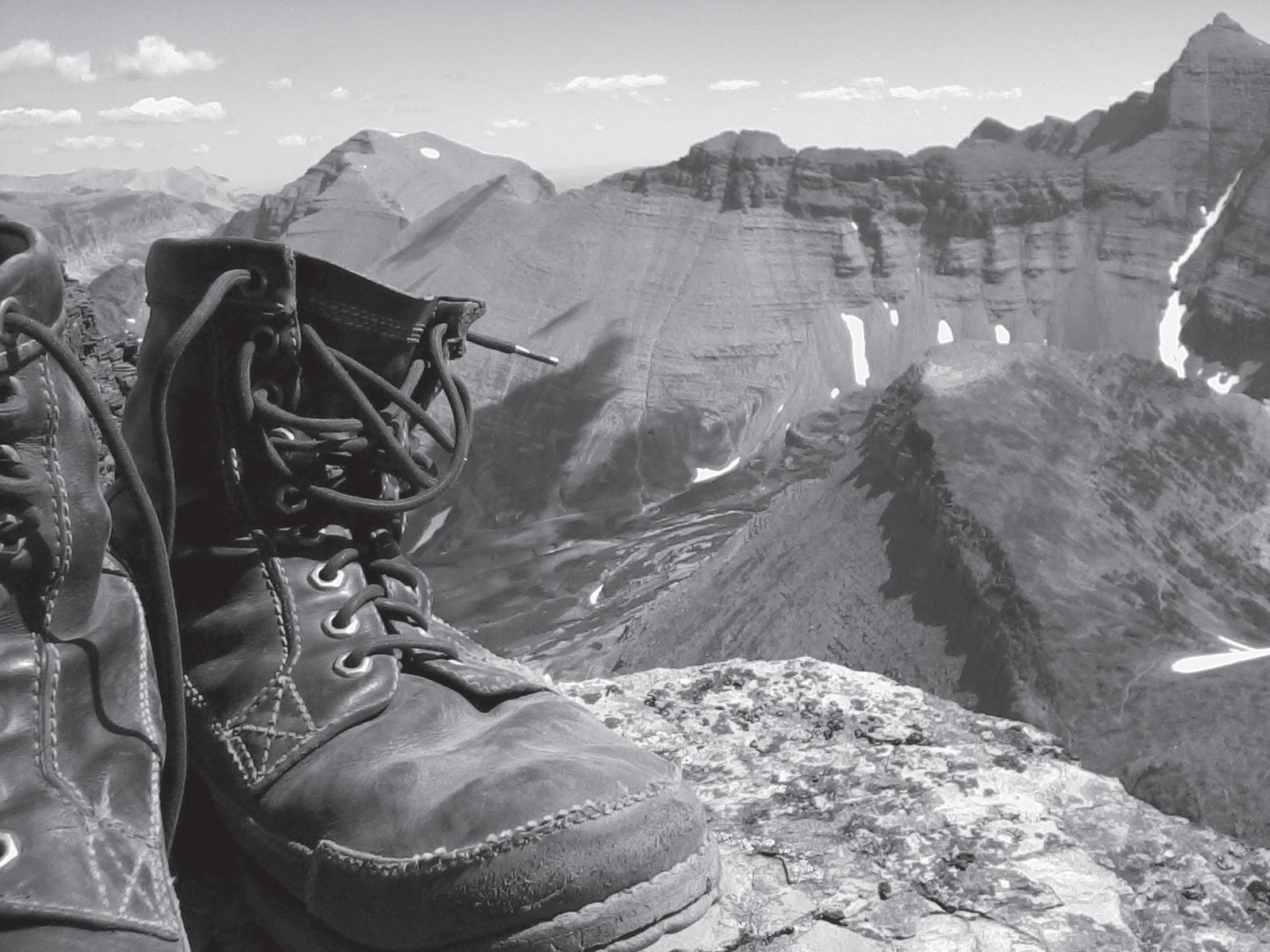
Watching Tyler Mortensen Editors’ Choice: poetry
Stalks of flowers in the small garden outside your window bend quietly, alternating the shapes of empty space
you stare into—
What makes you think that this world is not what you’re looking for?
Dusk settles in the street and among the gold crocuses, comfortable in the gathering dark that pales their bodies.
You remember summers before, each blooming with the clamor and the clatter of celebration, with the promise of impossible things; each
great body lying over the earth like a calm animal while you waited, intensely, for something more.
—What was it you wanted? Why, even now, do you stare out into the night, as if in the face of the lion, hoping the sky will arrange itself into some answer for your despair, your disappointment?
Do you not see what the sky— soft violet darkening between the stalks—is already?
That, already, your life is an impossible thing?

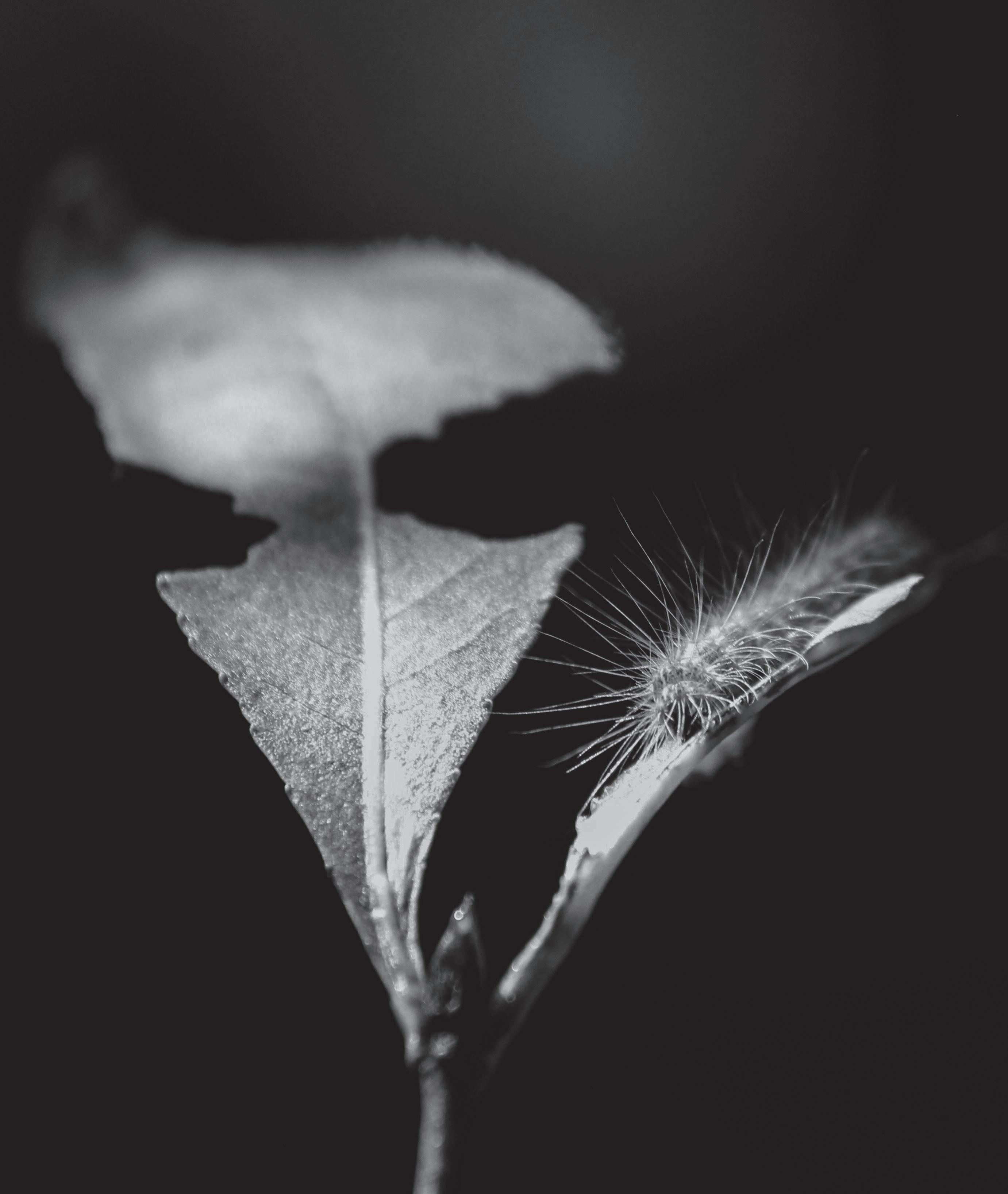
This place,
An aromatic coffee bean
Sincerely birthed for those with personality and purpose
Or, perhaps, no purpose at all
That is why we’ve come here
To ‘The Greenhouse’
Looking for something…
While looking for anything
Prestige- mask upon muddied mask
Ambition- an unyielding reality
The in-house subtly painted with deep mustard yellow
Look up,
A tragically opaque blue mops the ceiling with eclectic taste
This is where the purity of Self
Will slither between mosaics and Picasso-esque paintings
EYES, EARS, LIPS, SOULS!
Open up! She’s knocking…
Lust will spill out
Pouring profusely into this vacant air
Grasping for the one individual willing to take hold
Willing to become a wanderer, In an avid world of writer-itis
Stricken with beauty, montage, and grief
Her name is Poetry
Awe, to live and write in a world full of authors.
I begin to wonder if words will grow stale.
Will they become lifeless, or- like a fine wine- get better with age?
SLAM!
Let the concert begin!
Words slash the air in fleeting syllables
A tirade of lingua spewing to and fro
Here we are ladies and gentleman, Embedded in the heart of passion.
LISTEN!
She speaks…
I call Her, ‘The Greenhouse Effect’.

Around the bend of Golden Glyph Stands an awkward looking cliff Connected to mountain high and wide, Rising in reverse from which you’d climb. The peak is flat; the bottom, point— A balancing act of shifty, stacked coins. The ground atop should be below; The granite underneath un-whited with snow. A mile high (or even more), Instead, the tip supports the floor. The law of gravity only here fails As shale won’t slide to turn the scales. But then again—who knows—it could; The bluff above may slip, flip, and should.
Gary Howard
I remember the exact moment the bottom fell out and I thought how convenient that god gets to see how self-deluded we are trusting that the fates will be kind that we may be reprieved pro tempore from the darkest shadow
but inevitably it is illusion and like pounding at the door in MacBeth I felt the chambers of my heart pulverized
hammer blows reverberating powerful unremitting and forgiveness? Forget that condemnation …….
It is lasting Its thighs all-constricting
I felt each mistake coiling tightly modesty mercy and the blasphemy of naked guilt
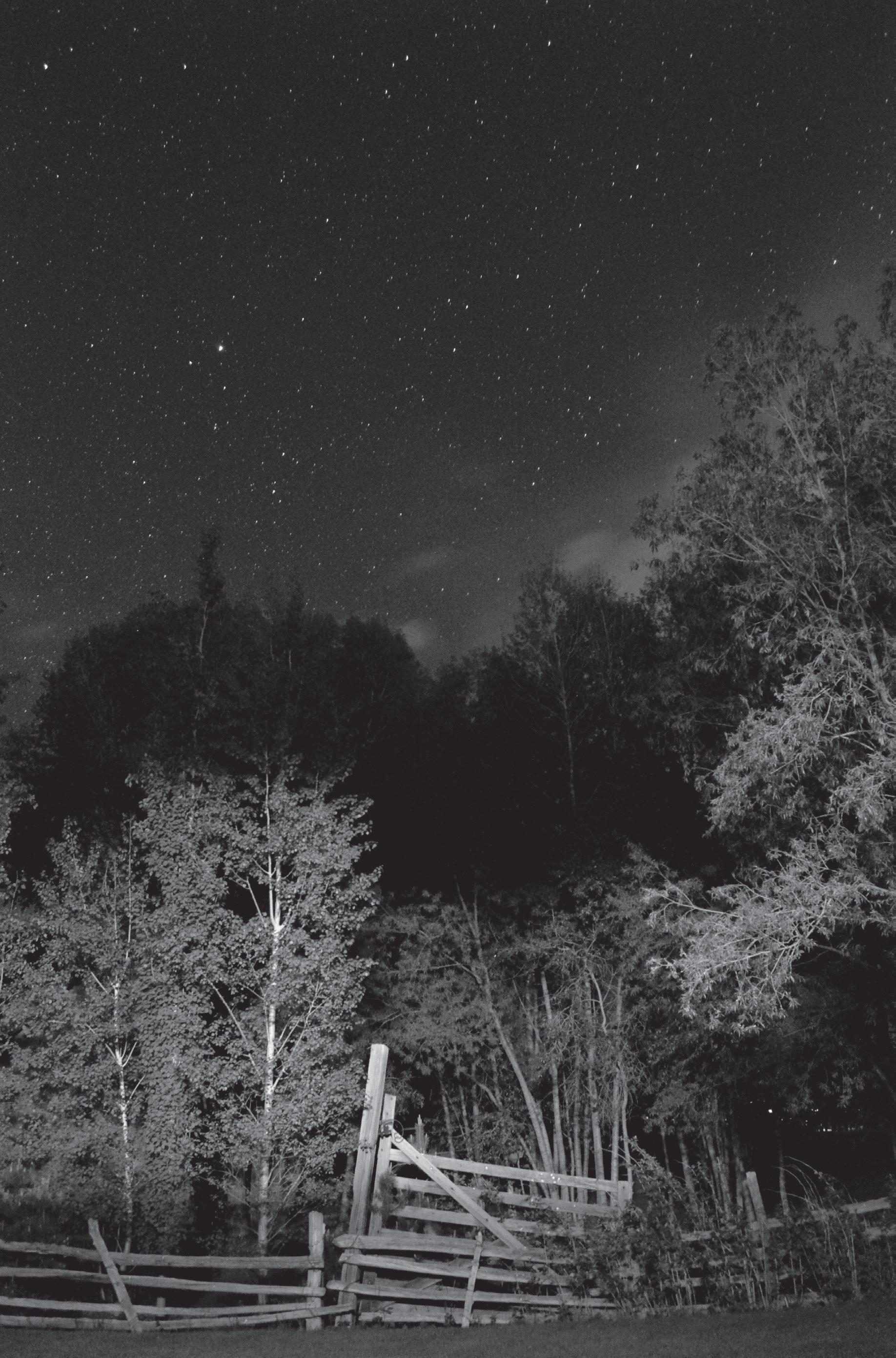
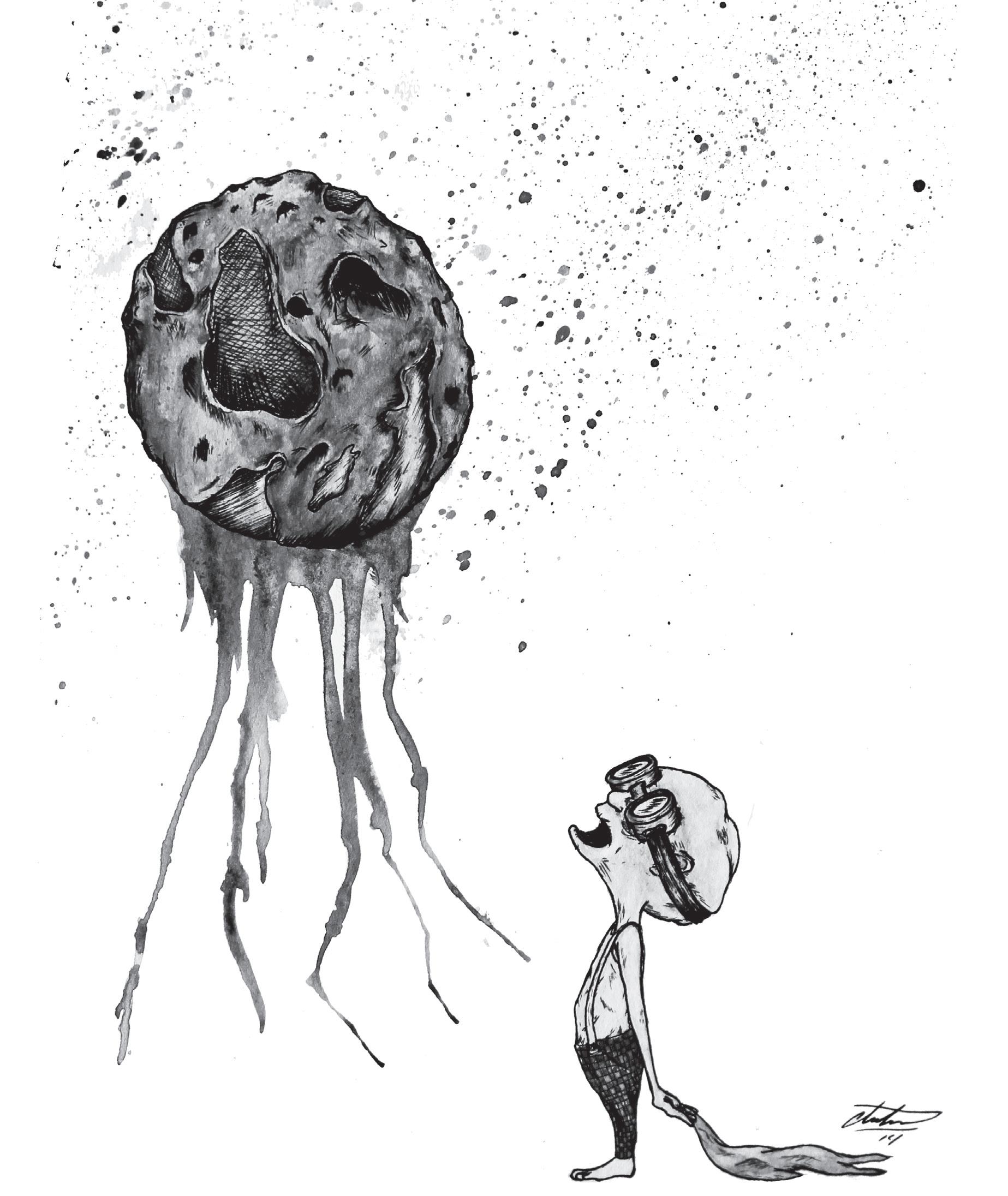
I found a pumpkin shell and thought
Katherine Allred
I found a pumpkin shell and thought here is the thing. I quick ran home with it and clapped you inside. The pumpkin shell is sitting in my kitchen and if I let you out you’ll be mad but if I don’t let you out you’re stuck inside a pumpkin shell. I should have left it where I found it I should have thrown it in the river I should have made you pumpkin pie then it would be inside of you instead of you inside of it.

Katherine Allred
Could have been in a side stepped place he did the things he said he didn’t do
I didn’t know how to know
My heart a bell
My soul a bird
My body a burl a knot of dormant buds
I know how to know
I believed he owned the rosy fingered dawn I believed I didn’t know
I know
My heart a bell
My hand a tree
My knee a wolf a pack of hungry wolves
I’ve always known
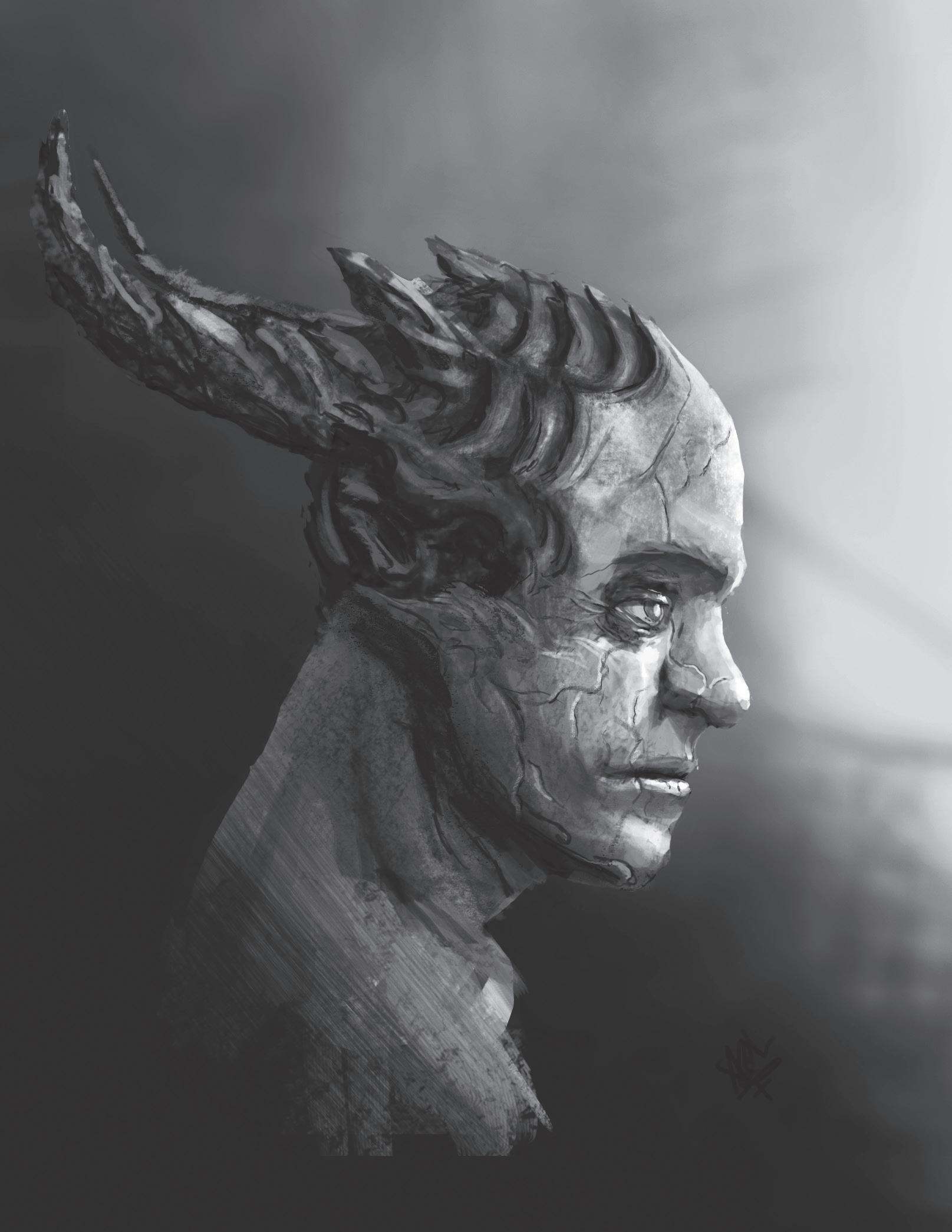
David Ahlman
Twostepslowlyintothearena
Fromthedarknessofthegate—
Ascrowderuptsincoliseum, The sands and rafters shake.
Blood last spilt from warrior’s spar Ignites the thrill of death in all: Inside the slaves, inside the mob, Inside the politicians, inside—I sob The fight they need and red that bleeds Is less than seemly for eyes to see— As worldly quakes, the hardened whole Lose sight of the worth of lowly souls. Roars rise louder than any scream Uttered in cheer or bellowed in team— A graphic end to a life but spent Serving as tribute to emperor’s raiment. His thumb points up, his thumb points down, Holding lost host in the palm of a sound— Whether for, or whether against Audience approval seals slashed to rest.
Onestepsslowlyoutofarena
Intothedarknessofthegate—
Ascrowderuptsincoliseum
The sands and rafter shake.

“Allpoetshavetobeexiled”-TheLawsofPlato
I find it marvelous that poets can pick a word from so many and put it where, next to other words, it creates an idea that seems to have always existed. But that’s the problem. It didn’t exist and never will. Poets lie. We can’t celebrate this. Break their pens and false wisdom. Break their hands and send them away.
Excerpt from:
Ashley Cox
Hey Jeremy,
So my wife and I were talking about you again, the whole exboyfriend thing in college. It’s always a weird conversation when you come up. I mean, all her old boyfriends are weird conversation topics, but you hold a special place, I think. Anyway I just wanted to thank you for being an idiot.
Not just an idiot though, but an arrogant ladies’ man bragging about the girls he has schooled. That was really smooth. And all your subtle remarks about losing weight, and better hair, and jasmine perfume, really hit the mark. She really appreciated you telling her what a real woman looks like. I know she especially appreciated the fat jokes and being poked to show her where the fat was. And speaking of looking beautiful, I know your bruising hands made her more confident in her body, especially the bruise on her shoulder, the one that showed how fat your fingers are.
Yes, and thank goodness you never gave her gifts. I mean, what would she have done with them, anyway? It’s not like she was used to getting daffodils or Oreos, not till I came along, at least. Besides, like you told her, you saved all that money by just giving her the precious gift of your time. Such a good idea.
And thanks for enjoying making her cry. That really worked too. Does laughing at the mascara stains as they appear always makes you feel like a real man? I’ve never felt that way, but you must have ‘cause you did it so often.
And just between you and me, man, it’s lucky you were so good at twisting reason on its head. I mean, convincing her that her father was just jealous of your relationship with her was a good move. She really fell for it because she was only nineteen and didn’t know that debating actually means winning every argument by force.
But you know, you might have actually had a chance with her. Like she actually thought she saw something worthwhile in you. Of course she’s the one who dumped you, so I guess not. Sorry, dude. She told me again about the conversation you had, you know the one, about how if she didn’t marry you she’d never get married at all, ‘cause no one
else would take her. It makes it kinda awkward now. I mean, she got married so much faster than you, and she’s still married even after your second divorce. Bummer that you can’t keep up your act.
But that’s for being such a bastard. Think how much safer she’d feel if she hadn’t met you, or how easily she would have dated halfdecent men who weren’t worth much of her time. Whatever, though – I might never have caught her attention with all the daffodils and Oreos if she had been used to getting them.
Anyway, I really hope you’re doing okay. After all the stories my wife has told me, I think you need some help or something. You should come over for dinner some time. I could show you a few things.
Sincerely,
Your Ex-Girlfriend’s Husband
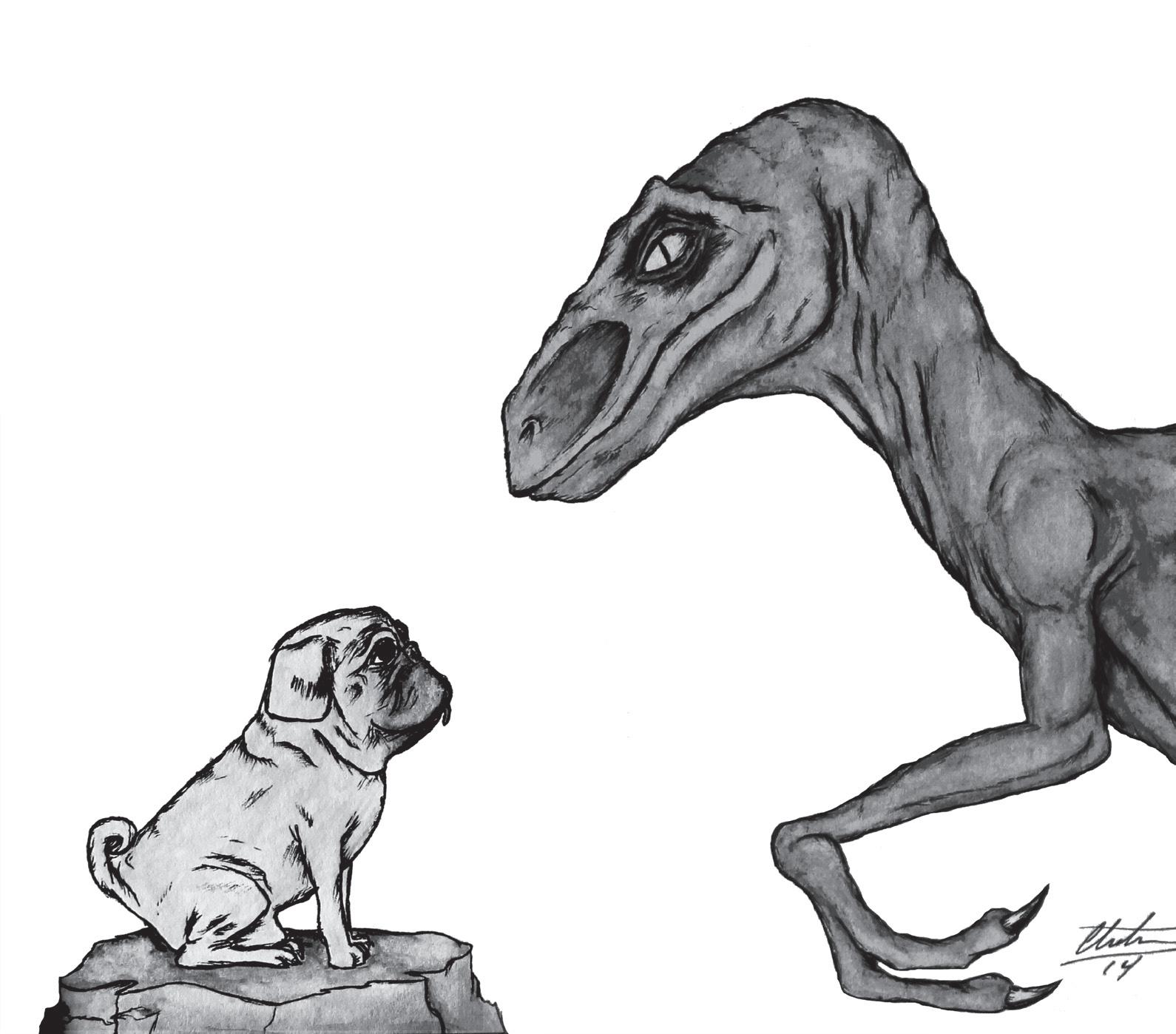
Excerpt from:
Brooke Smith
It was a cold night. Heavy smog made the air taste of copper and it stained Charlie’s nostrils – he snorted lightly as he ran. The rhythmic thudding of his feet upon the sidewalk went in perfect tandem with puffs of hot air that blasted out from his maw that billowed up and away into the night air.
Ofcourseyouforgotagain…
God dammit, Charlie.
~You better know who this is from.
Even with the bar in sight, he still couldn’t help but wince. With all the recent events with his family, his own brother hassling him for what seemed like higher and higher rent left more and more exhaustion on his shoulders. Yet even then, this was the third time, for the same reasons he managed to forget. At his own bar. She had every right to be angry with him, but hopefully she would be there waiting for him like all the times before.
His feet flew up the short steps to the door, his hand jammed the key into the lock, twisting it and shoving the door inward. Fighting to loosen the key from the door, the loud grinding from the key echoing into the empty room, he began to ramble. “Look, Shae, I’m so sorry –” Facing towards the counter he was met with darkness, her slim hourglass figure nowhere to be seen. Slowly he let his keys collapse back into his pocket as he took a few good strides. The door lightly clicked shut behind him. Luckily the place had some good windows on the east side of the building that let in a bit of light and bathed his pride and prison in soft cream, though at that moment the dust tumbling through the air gave it a gray hue.
Everything still smelled the same; the musty old place had been here for decades, although times had been better at its founding. Now it was just like every other watering hole in the ghetto. Even with keeping the place as mold-free as possible and offering higher grade booze to his customers, the rent was tearing any kind of face-lift funds right out of his desperate fingers. The walls had cracks running along them like spider webs, and though Charlie’s feet danced along it, the hardwood floor was uneven and dipped in odd places. But he’d been practically raised here, and the bar brought him a sense of home, even with the rats chittering in the walls.
His eyes scanned over the worn down tables and the chipped chair legs that were thrown up into the air haphazardly from their sloppy stacking. He neared the counter and in the glint from a street
light saw a crystal glass shimmering on the far end. He could feel his back begin to twitch, a twitch that ran down into his finger tips as he peered into the glass. Nothing but cold rock remained. Huffing deeply, he felt the tension slip from his neck as he pressed his side into the counter, ran a calloused hand up and through his hair, and found himself looking back to the front door.
Not being one for patience, he lightly walked forward, his side hugging the smooth edge of the wood and sliding right into the landing behind the rugged bar top. He noted that everything was all squared away, just the way Shae liked it, though Saul would dishevel it all by dinner time. A smirk tugged at his lips as he recalled meeting the bartender for the first time. They’d just been kids back then. He’d been ousted out of his birth right for murdering his mother during his birth, and his elder brother was now the loyal servant to the mob, while Saul had been given up for collateral to a rival gang that managed to get snared in deep debt with his father.
He pulled out a bottle of whiskey, twirled the aged bottle in his hand and, not wanting to dirty a glass, snatched the one waiting for him on the counter. Playfully swinging the glass in front of his nose to get a good whiff of Shae’s feminine concoction of orange juice and vodka, his thumb popped the cork off the top of his favorite malt. He almost dashed in his whiskey without a thought, yet his arm froze from a lingering harshness emitted by the glass. The scent was much too pungent for a simple screwdriver.
Chris Flower
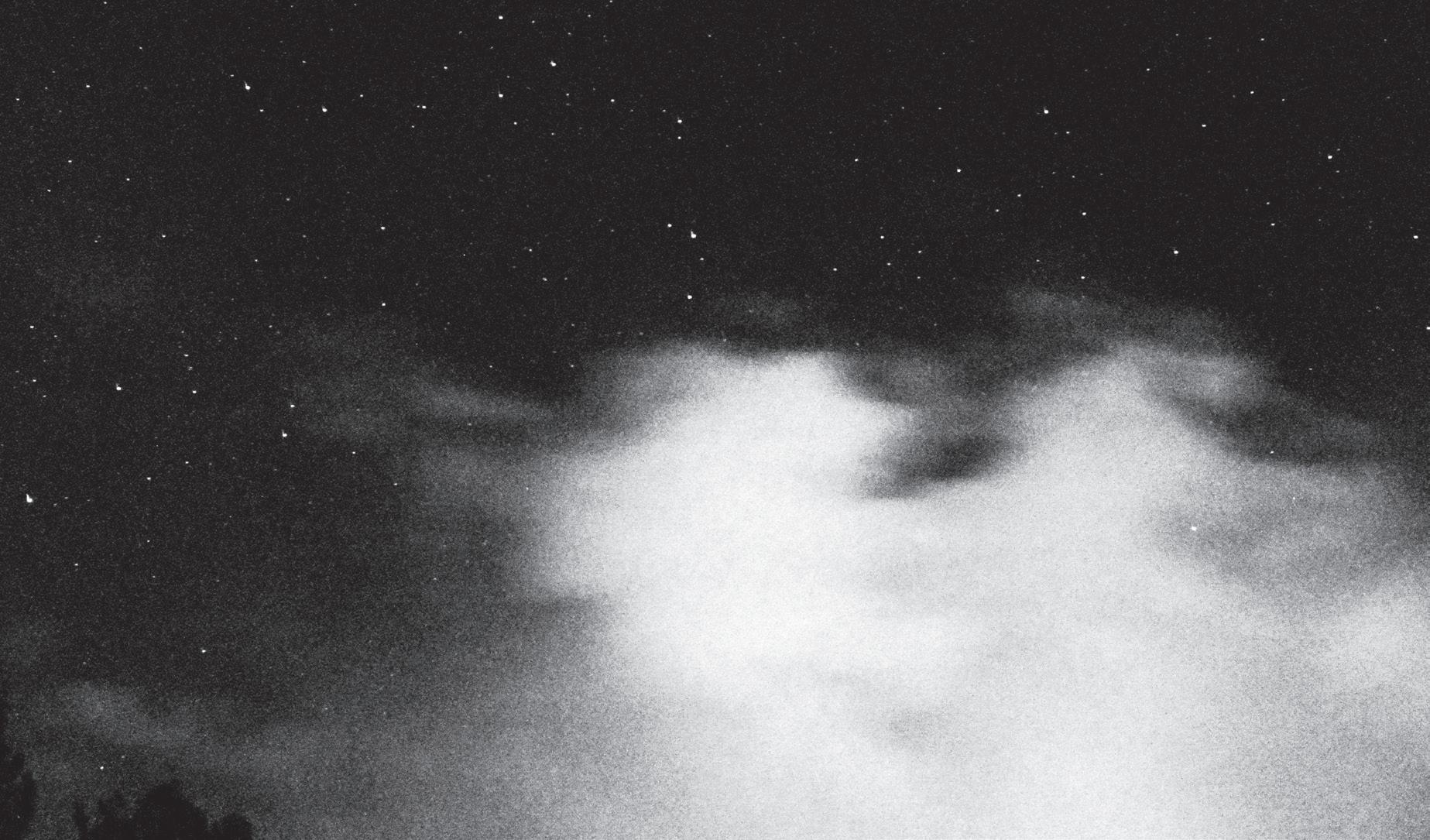
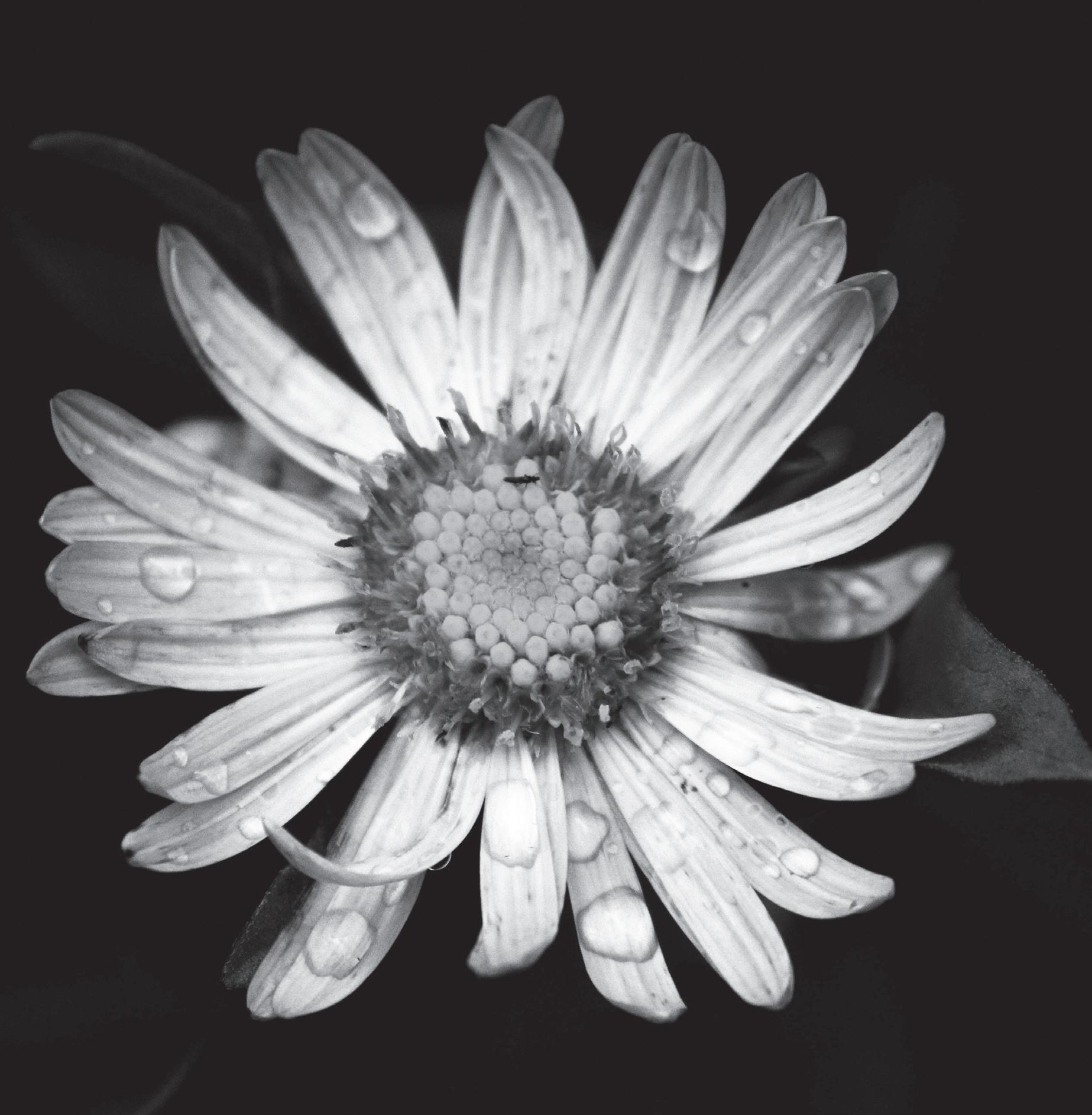
Tyler Mortensen
All day I have been trying to describe the white blossoms that have opened on the trees— the soft wings of their petals flecked with rain— and all day I have been a bad poet, saying nothing that the flowered limbs don’t say themselves.
Others walk among the trees and hardly look at them; write nothing, say nothing, though the scent of wet branches washes over them as they pass under boughs… Beauty
is no luxury; rather, it is like the rain, without which the trees, the earth, would not survive; which has no choice but to stream down.
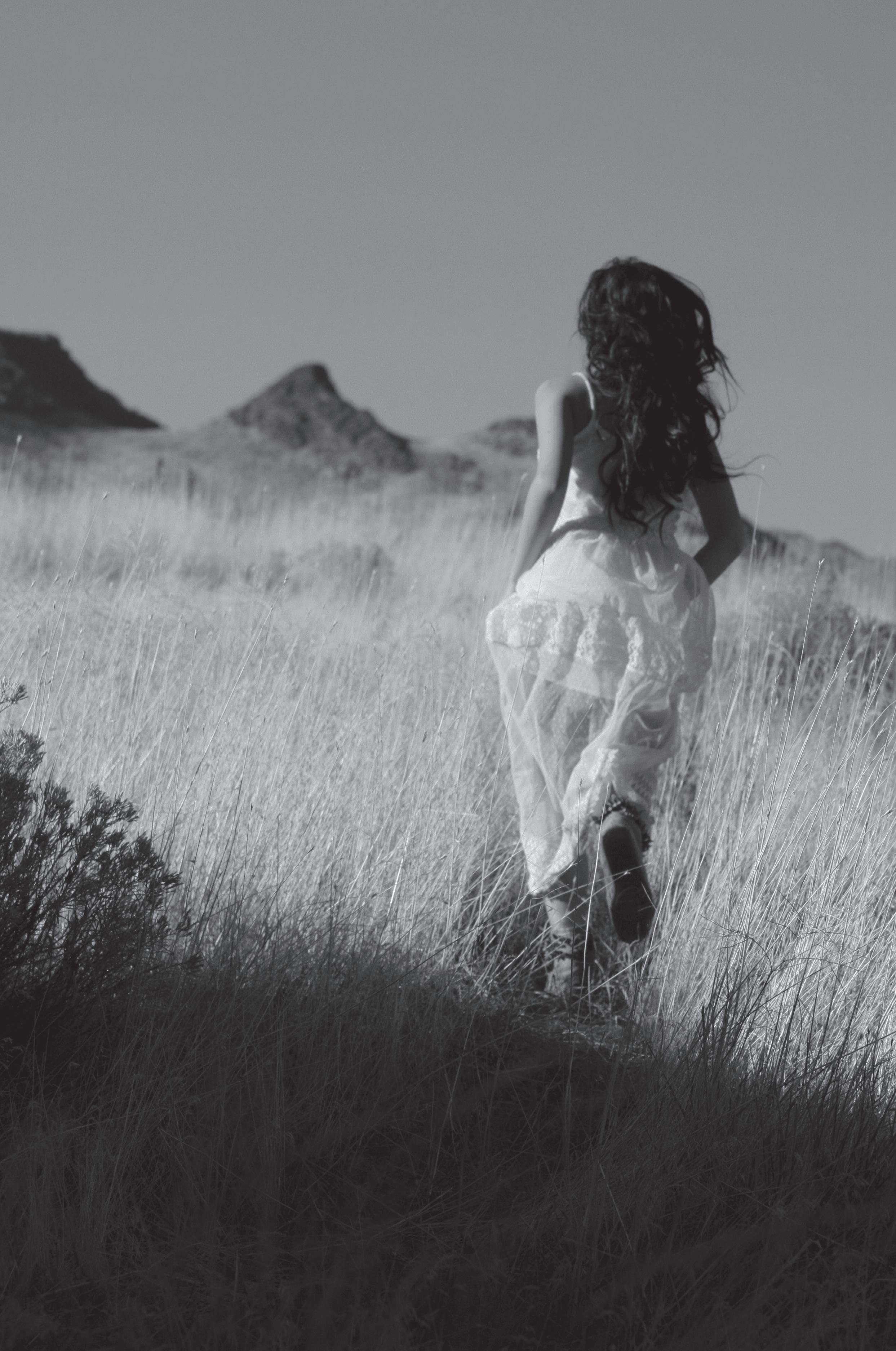
Curtis
a leaf falls in December no one knows how it lasted this long or why it would want to it lands even as snow falls covering all


Excerpt from:
Major Tom
Corey Young
Here I am again in the damn shrink’s office, lying on his couch like some stereotypical loser from a bad novel. He wants me to work on “pushing through the small things, to get to the major source of things,” and work on issues about my upcoming launch date. I don’t speak. I lay there and let him doodle in his notebook. I haven’t said much to him today. My hour is almost up. I am sure he has been doodling little hangmen, probably with my face.
“You know one thing I am tired of, Doc?” I say.
“What’s that, Tom?”
“I am so tired of all the assholes who walk up to me and sing lines from that damn song to me.”
“Song?”
“Yeah, you know. ‘Space Oddity’ by David Bowie? People just come up to me, people I don’t even know and they just start singing lines from that damn song to me. It’s starting to piss me off. It has my name in it, so I guess they think it’s funny.”
“What do you say to them?”
“Nothing. I just look at them like I am about ready to put a fork through their throat. Most of them just walk off.”
“It sounds like it’s not easy being recognizable. Maybe they do it because they think it will make them seem interesting to you, or maybe make you talk to them for a bit.”
“I don’t know. It’s just enough to make me go ballistic.”
“That’s the price of fame, I guess,” he replied.“Sorry, Tom, we are out of time.” I walk out of his office.
I guess it’s hard for people to understand what it’s like waiting for a launch date. That’s the day I go up, streaking into the sky as I sit in a capsule atop a rocket that is one big ball of flaming death just waiting to happen. First, I fly to Kazakhstan on a cold, icy, freezing morning. I sit for eight minutes on a tower of flame being lifted up to the International Space Station, the big set of tin cans in the sky. Sometimes I feel as though I could eat my own liver from the amount of anxiety I have. I could just reach in and pull it out. Sometimes it’s so bad that I doubt I can go through with it, but I have so much time and energy invested in this mission that there’s no way I can’t go. The thought of being in my flight suit sitting there with nothing to do for the time that it takes to launch and travel there makes me queasy. Six hours in a can, orbiting the earth a few times, then finally docking with the ISS – it’s unnerving.
I’ve always wanted to go to space, ever since I was a small boy watching the Apollo moon landing on TV. I managed to make it through college and then flight school with the US Air Force. I love to fly.
I lean back on my chair and listen to some 7 Seconds turned up loud, feeling glad that it’s not Major Tom. Damn that song.
The next morning I am on the way to the shrink’s office for more therapy. I leave mission control and stop at the guard station to check out. I show Greg my badge and he smiles. He sings, “Ground control to Major Tom, commencing countdown,” then he starts counting down as the gate arm lifts up. I fight the desire to flip him off as I drive through. Greg is a good guy; I can’t be mean to him. Damn that song. I can’t do this. I can’t go up. I have to tell my commander today. I can’t. I have to go. I would be too embarrassed not to.
I walk into the therapist’s office and sit in a chair that looks like it has seen a few decades of use; not really beat up, just antique looking. Really bad music plays over the speaker above me. I gag recognizing the muzak version of that damn song. “Space Oddity” blares out at me, sounding as though some soulless machine spits it into a lifeless disaster of sound, void of any life. I almost walk out when the doctor comes to get me.
“How are you, Tom?” he asks.
I say as calmly as I can, “I’m fine. Nice waiting room music. Don’t worry, I left my fork at home.” He looks at me, his face red with embarrassment.
“Sorry, Tom. That was a coincidence. The music is from a service. I don’t control what they play.”
“I saw a movie last week. SilverLiningsPlaybook. In it, a guy with a slight anger problem waits for his therapist when a certain song that makes him go batty plays. It turns out the therapist did it just to see what the guy would do. Are you testing me or something?”
“Nah, I’m not that big of an ass, Tom. It’s really just coincidence.”
“I would drop them,” I reply, smiling as I walk towards his office.
“I’ll consider it.”
“Awesome, Doc.”
We walk into his office. I can’t get comfortable laying on his couch, so I just stand at the window, looking out at the warm summer’s day.
“Why do you use a couch, Doc? Isn’t that just used in bad movies?” I chuckle.
“Feeling optimistic, Tom?”
“No more than usual.”